A few years ago the Independent put out a call for lists and there were some nice examples from well-known people. So they decided to throw it open to anyone.This was my contribution.
Five things I cannot live without ;
my Polar library
twice-daily arthritis pills
tap water – yes, London vintage
Mum’s pre-war copy of Little Women
with a single colour plate
him indoors
This was my inspiration for my contribution to our Ten Year Anniversary Edition of ABBA this month.
FIVE THINGS A WRITER CANNOT LIVE WITHOUT
1. Inspiration
Mine involves staring which is ok when you are on a deserted beach but can give rise to some tricky moments when you are staring at people in Costa cafe (where I often work) and they start glaring back. Picasso said, "Inspiration is there but it has to find you working." So I write and I grumble and I do displacement stuff and then I find myself going into a stare and there I am - in the wonderful zone of inspiration.
2. Chocolate
I nearly enlarged this picture and those of you who know me will understand why and probably everyone else as well. If inspiration starts with staring then it certainly can be fuelled by chocolate
Don't believe me?
Give it a go!
3. Paper
It has to be the right type. My husband has been perfecting the art of buying me the correct notebooks for over 30 years and trust me, he is the current world expert. Mainly because he can't think of anything else to buy me for birthday presents. I have notebooks to fill from Harrods, the Metropolitan m
If you look carefully, you will see the date on the top of this notebook page is February 20, 2005. What you don't see is that I have other notebooks with dates from 1995 on them, and they are all part of my working-out of Hang The Moon, which is a working title for the 1966 novel.
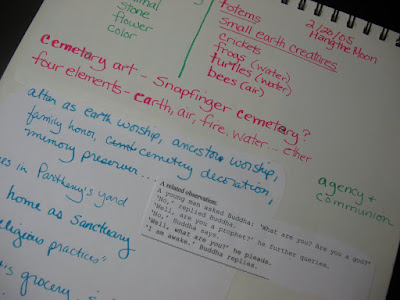 I had finished Each Little Bird That Sings when I was writing in this notebook. It was on the cusp of being published. I had turned my attentions to Hang The Moon, but I was still having trouble getting a grip on it.
I had finished Each Little Bird That Sings when I was writing in this notebook. It was on the cusp of being published. I had turned my attentions to Hang The Moon, but I was still having trouble getting a grip on it.
On the surface, the novel -- which takes place in 1966 -- is about two girls, cousins, and their trip from Mississippi to Memphis to find Elvis Presley, whom one of them is convinced (with reasonable proof) is her father.
But when I scratch beneath the surface, which I'm compelled to do every time I sit down to write it, I find that this book is just... enormous. It has overwhelmed me for years.
Under that surface story is more than I have been able to capably write about. This story has been asking for expression, and I have been trying to hear it. For fifteen years, ghosts have been whispering to me, revealing the deeper story to me, and I have been saying "not yet, not yet. I can't go there yet."
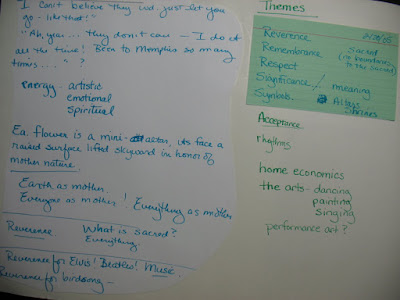 But it's time to go there now. There comes a point when it's worse not to go there than it is to say yes, and to step up to the plate. Below the surface of this 1966 story, running underneath how much Birdie loves Elvis and Margaret loves the Beatles, is a book about cosmic ideas, deeply-rooted beliefs, and love. There is pain and suffering. And deep, abiding joy as well.
But it's time to go there now. There comes a point when it's worse not to go there than it is to say yes, and to step up to the plate. Below the surface of this 1966 story, running underneath how much Birdie loves Elvis and Margaret loves the Beatles, is a book about cosmic ideas, deeply-rooted beliefs, and love. There is pain and suffering. And deep, abiding joy as well.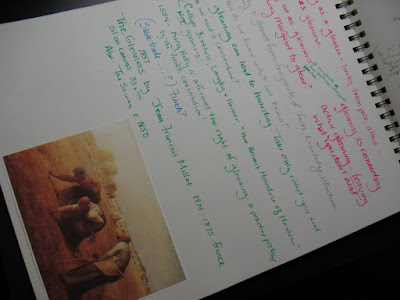 I'll be talking about the writing process (well, mine, anyway) tonight at 7pm at the University of Tennessee at Knoxville, at the Center for Children's and Young Adult Literature. If you're nearby, I hope you'll come out and tell me what you know about love and hope and courage. I need all these things now, as I navigate this revision of Hang The Moon. I am so looking forward to seeing your faces, hearing your stories, and gathering some of your strength for the days ahead.
I'll be talking about the writing process (well, mine, anyway) tonight at 7pm at the University of Tennessee at Knoxville, at the Center for Children's and Young Adult Literature. If you're nearby, I hope you'll come out and tell me what you know about love and hope and courage. I need all these things now, as I navigate this revision of Hang The Moon. I am so looking forward to seeing your faces, hearing your stories, and gathering some of your strength for the days ahead.
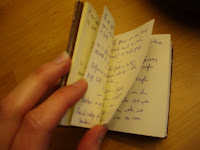 Don’t worry, though the title of this post might sound like the denouement of a Mills and Boon, there will be no ripping of bodices here. And no besuited gentlemen writhing in ponds. No. The chemistry I’m thinking about are the little atoms of ideas that strike me regularly. Each of which gets scribbled in my notebook. I’m sure most writers carry one or, failing a proper notebook, a handbag full of bus tickets written all over with a blunt eyeliner (or the male equivalent!).
Don’t worry, though the title of this post might sound like the denouement of a Mills and Boon, there will be no ripping of bodices here. And no besuited gentlemen writhing in ponds. No. The chemistry I’m thinking about are the little atoms of ideas that strike me regularly. Each of which gets scribbled in my notebook. I’m sure most writers carry one or, failing a proper notebook, a handbag full of bus tickets written all over with a blunt eyeliner (or the male equivalent!).
My notebook (that's it on the right) says things like:
‘Punkin Chuckers is an annual US pumpkin flinging contest.’
‘A word is a semi-autonomous virtual machine.’
‘I like marmalade and clean sheets.’
‘The owl and the pussycat eyed each other warily.’
The notebook records thoughts, overheard gems and random nonsense. Each of these is a separate, discrete element, set apart from each other like atoms on the Periodic Table. Alone, they do nothing very much; they're no more than a bit of hydrogen, a drop of carbon, a dash of oxygen.
However, given time, something miraculous might happen. I like to think that my notebook is a kind of ancient swamp – the primordial soup – and that the ideas in it might just come together to create a living, breathing story. A narrative abiogenesis. I just have to fill the book up with enough interesting chemistry and, with luck, the biology will follow.
So, since submitting my last novel before Christmas, I have been spending a lot of my time filling the notebook. I spent a couple of hours looking at religious paintings; I saw the finalists in the wildlife photographer of the year competition and visited an abandoned shop which now hosts local artists’ shows. I’ve been reading fiction and non-fiction. I’ve been stealing ideas and dropping them into the swamp.
On the 1st February, I will sit down to begin something new. I’m not sure what it will be yet. I’m hoping that the notebook has been getting jostled and shaken and heated and when I open it on that day, something exciting will spring out. Or, of course, grey sludge might dribble onto my keyboard. There’s no way to know when just the right ideas will meet, so until then, I’m out in the world, scribbling in my notebook. Or on the back of a receipt if I’ve brought the wrong handbag.
There's a story here. Which one should I tell? Just a few choices:
1. How long it took me to gather all the ingredients this year, to dig up the jars from their basement banishment and wash them, and then how the actual making was (I always forget) a snap. An "inside" story, perhaps of lethargy or procrastination, or is it a wee bit of depression? Nah, it's something else... I could investigate.
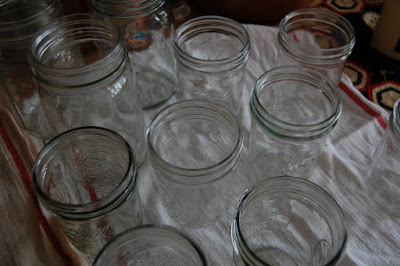 2. Making Christmas in my new hometown of Atlanta, segueing into how much delight I'm finding in this holiday season, the first one in several years that I have enjoyed for just-itself, or as I wrote a friend this week, the first holiday in years that I have not been a) destitute, b) traveling, c) on deadline, or d) having my annual nervous breakdown. Nah... too wide. I want to focus on the granola.
2. Making Christmas in my new hometown of Atlanta, segueing into how much delight I'm finding in this holiday season, the first one in several years that I have enjoyed for just-itself, or as I wrote a friend this week, the first holiday in years that I have not been a) destitute, b) traveling, c) on deadline, or d) having my annual nervous breakdown. Nah... too wide. I want to focus on the granola.
Let me strive for one clear moment in time. I'll take a lesson from what I teach. Take one moment, beginning-middle-end. Write short. Use telling detail. Use your senses. Your feelings. Show us that moment in lovely (terrible, excruciating, hilarious, comforting, angry, amazing) bas relief. Let us live it with you. So. Try again. Why is this moment important to me?
3. The first time I made this granola, I made it with my son, Zach. He was almost three. The recipe has the date written on it: December 1984. I took it from an old Rodale cookbook that was falling apart by the time I moved to Atlanta, so I cut the recipe out of the cookbook and pasted it into the front of American Wholefoods Cuisine by Nikki and David Goldbeck.
 But wait... I'm straying. I can add this in later if I want to, for texture and reference, when I revise.
But wait... I'm straying. I can add this in later if I want to, for texture and reference, when I revise.
I'm on to something. Let me grab my notebook. Scribble: making this granola with three-year-old Zach who is now almost 28. The way the day was so foggy and cold and damp, but inside the fire crackled and the young enthusiastic son stirred and tasted, stirred and tasted, standing on a chair at the table, wearing one of my aprons hiked up under his armpits, an enormous pot and a fat wooden spoon his companions, how he asked a million questions, how he wanted to gift the world with this granola, and how I learned he needed a funnel to fill the jars; how I wrote the recipe on homemade recipe cards, how he punched a hole in the corner of each, and how we, together, tied the recipe to the jar with a length of red yarn.
What else? How his eyes shined with his accomplishment. How we sang "Jingle Bells" as we worked. How he signed each card in green crayon with a crooked Z. How he said, like it was the most natural thing in the world to expect, "Let's do this again tomorrow." How flat-out happy I was... how young I was.
Yeah, let me write about that. Let's see: what happened first? I want a good lead. And what happened next? Let me capture this moment in time; let me preserve it forever.
3 Comments on early kitchen morning and memory, last added: 12/15/2009
I'm going to write about my biggest fear with Hang The Moon, the second book in the Sixties Trilogy, but I can't do it today. My friend and mentor died on Friday, and she is part of this Hang The Moon story, so first I want to tell you about her.
But I can't. I'm bereft and don't yet have the right words. So let me direct you to her website and her obituary, and let me say farewell in a most clumsy manner to Norma Fox Mazer today. I loved her and love her still. Her book When She Was Good knocked my socks off and was part of the reason I went to Vermont College to get my MFA in writing. Norma was my advisor for two semesters and became my friend. She loved me, too, with a fierce devotion that always surprised me. She demanded the best from me, and often I failed her miserably. And more than that, I cannot find the words to say.
I'll leave you instead with a piece I read this morning about a student and a teacher. It's Good Writing -- that phenomenon I love. Good Writing elevates the mind, and even life. And today I need a little elevating.
This piece is by novelist Alexander Chee, about his time studying with Annie Dillard. It will appear in the book Mentors, Muses & Monsters, edited by Elizabeth Benedict and published by Free Press/Simon & Schuster later this month.
Here's a tiny excerpt:
In that first class, she wore the pearls and a tab collar peeped over her sweater, but she looked as if she would punch you if you didn't behave. She walked with a cowgirl's stride into the classroom, and from her bag withdrew her legal pad covered in notes, a thermos of coffee and a bag of Brach's singly wrapped caramels, and then sat down. She undid the top of the thermos with a swift twist, poured a cup of coffee into the cup that was also the thermos top, and sipped at it as she gave us a big smile and looked around the room.
Hi, she said, sort of through the smile.
My first meeting with Norma Mazer was very different. I'm writing about it for publication right now (I will post the link when it publishes) and I'm trying to get the words just-right. I want the tone, the detail, the feeling of it to come across... and -- once again -- I'm failing miserably. But I will continue to try.
This is what Norma would tell me to do -- write. Keep working. Try. I may be gone, but that is not an excuse for you not to do your job, not to meet your deadline. I know she is right. And I know I will find the words.
Norma was ever the teacher. So, in her honor, I will put on my teaching hat today, too:
Try. Open your notebook and sketch a scene about meeting one of your teachers -- a mentor, a muse, a monster. What was it like? Notice what works about the Alexander Chee paragraph above, and why it works. Take it apart and see how you can do the same in your own short piece about a teacher whose presence has stayed with you.
My wise husband says that some people leave a part of themselves within you when they die. I think he's right. Norma is still right here, right with me, in my mind and heart, as I write Hang The Moon. What a gift that is.
Thank you, Norma. Thank you for all you gave to your friends and family, to the world of children's literature, and to those of us who came to learn at your feet. How strange the world is without you. How lucky we are to have our memories... and your stories.
Home, friends. I am home. There's no place like it, and I'm glad to be here. Thanks for coming to the low country with me. I had no words last week, but I loved reading yours. Thanks for all the lovely mail. I savored every word.
 And now... a return to our regularly scheduled program. I have breakfast with my editor this morning (Sunday). He's here for the Decatur Book Festival, so we will take some time to be together this morning, to meet face-to-face for the first time, and start getting to know one another in person.
And now... a return to our regularly scheduled program. I have breakfast with my editor this morning (Sunday). He's here for the Decatur Book Festival, so we will take some time to be together this morning, to meet face-to-face for the first time, and start getting to know one another in person.
If you've been reading One Pomegranate, you'll know that I lost my long time, beloved editor, Liz Van Doren, in early 2007 -- a devastating blow. We had worked together for 12 years. Over time, we had learned to complete each other's sentences as we talked about stories. We challenged each other. We made good books together.
Kate Harrison became my editor at that time. Within the year, she left Harcourt for Dial/Penguin, and I landed at Scholastic with Kara La Reau and David Levithan. The plan was that I would work on the first of the sixties trilogy with Kara, but eight months later, Kara was laid off, just as I was nearing the home stretch of a complete draft of book one.
David and I began working together less than a year ago. In that time I finished the draft, finished another, and another, and have gotten to know David through phone calls and email. He's a good editor. I don't know him well yet; we are learning to work with each other, and I understand that good working relationships take time and trust. It's not necessary for us to become friends, although that would be nice, but we are already colleagues in book making, and I am delighted by that.
At any rate, it will be good to have met face-to-face as we come into the home stretch of putting this novel to bed. There are a million things to talk about, to ask about, to learn. And to share. Many of them have nothing to do with books. I'm looking forward to breakfast. It's good to be home.
As for Charleston: we'll be back. It was good. Very good. And... I have a prompt for you (and your students):
Take a digital camera with you and take photos on a given day of objects that tug at your heart. Don't think too hard about why they tug, just trust your gut. Take as many photos as you want.
Then, take a look at your photos and select the four or five that can tell a story of that day in one word. That one word will be a theme, if you will. Let that one word title and those photos help you tell a story wordlessly. Let them evoke a memory, an emotion, a mood, a narrative. See what you come up with. You can use my posts from last week as a model or guide. This should be creative and fun -- and full of good ways to think about story.
I'd love to see what you come up with. It could be a notebook exercise. The photos, printed on computer or photo-quality paper, could be pasted into your notebook with your one word as a heading. (Conversely, if you are keeping a blog as scrapbook (One Pom is part scrapbook), you can easily construct this as a blog entry.)
So. Personal narrative in photos. I'd love to hear the discussion this engenders, too, and the ways that you adapt it for your own purposes.
And now: What to wear to brunch? It always comes down to the practical considerations, doesn't it?
I spent the largest part of yesterday afternoon with daughter Hannah, gathering. We went thrifting and discovered a sixties lemonade pitcher with five glasses, as well as some old sherbet cups, perfect for all that ice cream we've been making. We visited the farmer's market in Decatur, where we bought eggs and bread and cucumbers. Then we picked up our first CSA box as well, full of tomatoes, green beans, okra, peppers, melons, potatoes and more.
 All in all, a good gathering day. And, best of all, we gathered more than concrete things. We gathered ourselves together, too -- we confabbed, we reminisced, we shared the doings of the days, and we made some plans for the future. A celebration is in order. Our friend Richard has a new job -- surely this calls for cake and more ice cream.
All in all, a good gathering day. And, best of all, we gathered more than concrete things. We gathered ourselves together, too -- we confabbed, we reminisced, we shared the doings of the days, and we made some plans for the future. A celebration is in order. Our friend Richard has a new job -- surely this calls for cake and more ice cream.
Yesterday I got busy gathering the new book together as well. As I browsed the aisles of Kudzu with Hannah, as we talked about the coming season three of Mad Men, we'd hold up a find and say, "Oh, this is such a Betty dress!" or "this is so Joan!" and as the lemonade pitcher and glasses came home with us, I slipped back into the sixties.
 Once we were settled at home and the produce was put away, I sliced a fat heirloom tomato for a tomato sandwich on two slices of Magnolia Bakery's cinnamon-raisin-pecan bread. I slathered the bread with homemade mayonnaise, layered in the tomato and salt and pepper, poured a glass of peppermint iced tea, and sat down to supper in Irene with my notebook.
Once we were settled at home and the produce was put away, I sliced a fat heirloom tomato for a tomato sandwich on two slices of Magnolia Bakery's cinnamon-raisin-pecan bread. I slathered the bread with homemade mayonnaise, layered in the tomato and salt and pepper, poured a glass of peppermint iced tea, and sat down to supper in Irene with my notebook.
I'm beginning again. I'm gathering to me the bits and pieces for a new book. I can see that I need to research again -- I'm making a list of books, DVDs, and music I need to read, re-read/watch, and listen to. The playlist is coming along. Soon I will pull out the art tablet I used for this second novel -- I know what this book is about, thanks to this art-tablet notebook -- I've kept lists upon lists of what I want to know, what I know, and where I think this novel is going.
It will surprise me as I write and revise, but today I expect these surprises. I'm ready to gather them to me as well, to gather together all the pieces and parts of 1966 -- what's in my head, and heart, along with the drafts I have discarded over the years. I'm ready to get to work.
As soon as I make a cake and a little malted milk ice cream. (Thanks, A., for the link!)
Pictured below is yesterday's haul at Book Nook in Decatur, Georgia. I almost never find anything affordable anymore at used book stores. Long gone are the days I rummaged through boxes of books on the side porch of a little thrift store in Vienna, Virginia and bought books there for a nickel a piece when I could afford the extra nickels.
I also bought my then-three-year-old daughter a nightgown for 45 cents, which stays in my mind for some reason -- even the very look of it I remember... it was soft, well-worn cotton, buttercream yellow with tiny lace trim on the sides and bottom. Oh, how A. wanted that nightgown.
It was 90 cents, and outside my very paltry budget that day, but the owner took one look at us, and especially at A., who had her hands clasped under her chin, longing for that nightgown, and said, "Today, it's half off." My daughter wore out that nightgown before she grew out of it.
I digress.
 I am partial to thrifting. Years ago, it saved my life. Even though that sounds like a drastic statement, it's true, and one day I will write about that life. These days, thrifting sports a different hue, but is no less important to me. Most of my home is furnished with thrifted items, and most of the clothes I wear are thrifted.
I am partial to thrifting. Years ago, it saved my life. Even though that sounds like a drastic statement, it's true, and one day I will write about that life. These days, thrifting sports a different hue, but is no less important to me. Most of my home is furnished with thrifted items, and most of the clothes I wear are thrifted.
(Another aside: I once worked in an IRA symposium with the wonderful Naomi Shahib Nye, who boasted at the microphone (because she'd been introduced this way) that she had not bought anything to wear in over 8 years. "Share with your friends!" she said. Say it, Sister!)
Ahem. To the books. I love old cookbooks and gardening books, and old, odd books about keeping house and parenting. Yesterday at Book Nook, I found so many good ones on the half-price bookcases. The entire haul cost me $11.77, with tax, which is harking back to those good old days before thrift stores really knew how much old books could bring.
Maybe these books are important only to me. That's fine. This winter I will savor The Encyclopedia of Cooking (1951), Farm Journal's Cooking for Company, The Winter Garden, and sooner than winter I will try some recipes from Our Daily Bread along with the Chocolate-Orange Meringue Pie ("Light and colorful with grated chocolate as a garnish and a surprise layer of chocolate under the orange custard filling" p. 228) from Farm Journal's Best-Ever Pies.
Wanna come for dessert? A recipe isn't complete until it's shared.
I'm thinking about cooking lately since I have time to cook these days (have made time), and because I see what a community cooking and eating together creates.
Michael Pollan was interviewed on Fresh Air yesterday. It's a 20-min. interview worth listening to. He'll have an article in the Sunday New York Times worth reading about the same topic -- we watch cooking shows, but we cook less than ever. Why is that? He posits that it may well be that it wasn't fire or even language that grew us up into human beings. It may be the act of cooking.
And thrifting. :> Finding new uses for old discards. Or repurposing what we already have. Kids do this instinctively -- the couch cushions turn into a rocket ship or a cave.
What about you? What do you thrift or repurpose, and how do you do it, and why? What's the greatest, neatest, coolest, funkiest, funniest or most amazing thing you ever scored/thrifted/yard saled/repurposed?
Write about that. Short. One seed of the pomegranate. Just one story. Beginning, middle, end. Take a snapshot, draw a picture, give it some heart, make it a song. I'd love to see it, hear it, savor it. It will enrich my life every bit as much as that Chocolate-Orange Meringue Pie. Less calories, too.
It's why we're here, to share our stories with one another.
We've had the best rain this week. Thunder, darkening skies, steady showers, even downpours, then clearing and the sun shines again. For a drought-weary city, this rain has been a blessed relief. The garden lives again (no amount of watering helps a parched garden, especially when watering restrictions are in effect), and there are indoor things to do.
 A rainy evening calls for cookies. Thanks Hannah.
A rainy evening calls for cookies. Thanks Hannah.
 A rainy afternoon calls for a cucumber/tomato salad... the last of the farmer's market produce this week. We eat in Irene and watch the rain sluice all around us, like a curtain. The smell of rainwater on dry earth is exquisite. My Aunt Mitt used to say, "Just smell the earth! I like to think God washed it!"
A rainy afternoon calls for a cucumber/tomato salad... the last of the farmer's market produce this week. We eat in Irene and watch the rain sluice all around us, like a curtain. The smell of rainwater on dry earth is exquisite. My Aunt Mitt used to say, "Just smell the earth! I like to think God washed it!"
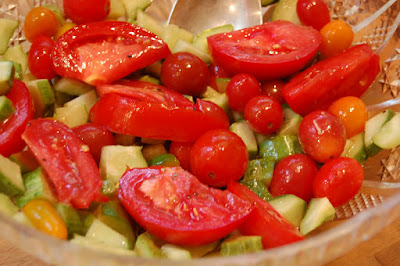 A little hula hoop practice is good for the rain-bound soul.
A little hula hoop practice is good for the rain-bound soul.
 And a little administrivia. Web page building, email answering, work-related phone calls, and bill paying. All a distraction while waiting for the sun to come back out.
And a little administrivia. Web page building, email answering, work-related phone calls, and bill paying. All a distraction while waiting for the sun to come back out.
 Thanks for all the anniversary good wishes yesterday! We had a wonderful day doin' nuthin' much.
Thanks for all the anniversary good wishes yesterday! We had a wonderful day doin' nuthin' much.
What do you do on a day when you do nuthin' much? What do you do when it rains? Pull out your notebook and write one paragraph, one pomegranate, full of the most luscious details you can muster. Write with nouns and verbs.
Have a great weekend.
The ingrate. Just look at him, belly on the cool wood floor, little right foot sticking out so coyly. We rescued him from the bushes two years ago, when he was just a few weeks old, nurtured him to health, spent a bazillion dollars in vet bills -- he was always getting torn up outside by some thing or some other cat. We cooed to him and coaxed him and played with him and educated him and lovingly encouraged him to love us right back even as he chewed on our fingers and nipped at our ears -- hahahahaha. Our mistake.
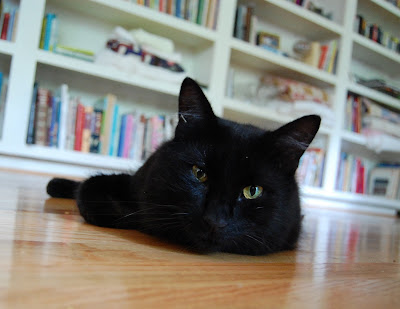 Here is Cleebo, named for the same character in The Aurora County All-Stars. Cleebo the Clueless, I called that character. But this Cleebo is not clueless -- he's wily and crazy like a fox.
Here is Cleebo, named for the same character in The Aurora County All-Stars. Cleebo the Clueless, I called that character. But this Cleebo is not clueless -- he's wily and crazy like a fox.
He stays away for months at a time. Yes, months. He returned at Christmas after an absence of a month, and we rejoiced. He sauntered in, chowed down, and waltzed right back out the door. He was gone for over two months this spring -- we were sure the coyotes that live across the way had gotten him. But here he came on the Fourth of July, still wearing his collar and name tag (with our phone number on it), loping down the driveway like he'd never been gone a day, right past me as I stood in the garden and watched him, my hands full of weeds.
We were overjoyed to see him the first time he came back. We had been so worried about him and had missed him so much. Now, when he shows up again, we hardly move. Someone says, still lovingly (we are suckers for Cleebo, we can't help it), "you ingrate..." as he sashays past us heading for the food bowl. Then I make sure he has his flea meds and is up to date on his shots before he can get back out the door.
He has been in and out since July 4, and I don't know if he intends to stay for a while or not. I've thought about writing about this cat, making up a story for a picture book, but I don't have a strong attachment to that idea, and I need that strong pull to the heart before I can make any story successful, so I'll pass on using Cleebo as a story idea.
So I won't write about Cleebo, and I don't write about my children or grandchildren or even the present day. I tend to plumb my young life for stories instead. I always go where my heart leads me, in trying to tell a story. The craft can and must come later. But if my heart's not in it, if there's not something strongly and steadily pulling me toward writing a story whether or not it ever becomes a book, then I leave it alone -- it's someone else's story to tell.
I've got four or five stories clamoring for my attention right now. I've got to turn my full attention to book two in the sixties trilogy soon, but I think I can work up one of these shorter pieces now. Which one is yakking the loudest? Time to sit down with my notebook and see.
Here it is. The 1962 Novel has a playlist. Here are the songs mentioned in the book, the songs that are the soundtrack of my heroine Franny's life. You'll recognize Broadway, film, political polemic, humor, poetry, hymns, marches, jazz, rock, pop, R&B, country folk, anthems, classical pieces, spoken word (including a snippet of JFK's Cuban Missile Crisis speech and the Duck and Cover PSA) and a hint of the British Invasion to come.
You'll also read a snippet of the novel with each song listed, as a taste of what's to come next May when the novel is published. We'll also make this playlist available on iTunes at some point, so readers can download the songs that appeal to them and follow Franny's life (and the novel) in song.
Most recordings are orginal to the era. Three I've snuck in there anachronistically, because I took some artistic license. Can you tell which ones?
What is the soundtrack of your young life? List it, in your notebook, download it, sing it, act it out, dig up photos of that time and remember how that soundtrack defined you then... defines you now.
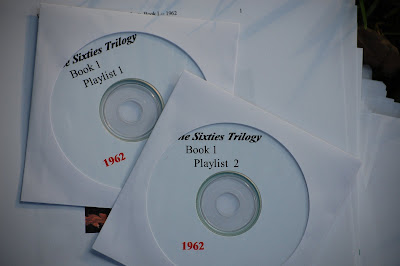 If you were 11 years old in 1962, your playlist might look something like this:
If you were 11 years old in 1962, your playlist might look something like this:
1. You'll Never Walk Alone from Carousel by Richard Rogers and Oscar Hammerstein, sung by Shirley Jones in the 1956 film version.
I am eleven years old and I am invisible.
2. How the West Was Won (Main Title) from the film of the same name, soundtrack by Alfred Newman 1962. John Wayne played General William Tecumseh Sherman.
He's standing with his big hands on his hips like he's John Wayne in a cowboy movie, saying Don't worry, ma'am, it's just a coyote.
3. I'm Just Wild about Harry by Eubie Blake and Noble Sissle sung by Ethel Smith (and Eubie). Harry Truman chose this as his campaign song.
From Biography 1: He had dreamed of being a great soldier when he was a boy and suddenly he had a chance, because in 1917, America began fighting in a war in Europe.
4. Happy Birthday Mr. President vocal by Marilyn Monroe, spoken word by John F. Kennedy.
"Gale's going to be Marilyn Monroe for Halloween," says Margie.
5. Jose the Astronaut by Bill Dana
Drew interrupts. "I'm going to be an astronaut!"
6. Where Have all the Flowers Gone? c. 1961 by Pete Seeger and Joe Hickerson adapted from an old Ukranian folk tune, sung here by Peter, Paul and Mary.
Heavens to Murgatroid, Uncle Otts.
7. In Flanders Fields written by Lt. Col John McCrea, read by Anthony Davies.
Nothing's wrong with him! I want to scream, but that's not true.
8. Que Sera Sera by Jay Livingston and Ray Evans sung by Doris Day from The Man Who Knew Too Much 1956.
Mom is wearing her party apron at the sink. "Where have you been?" she asks in her Spanish Inquisition voice. Mom used to sing when she washed the dishes. Not anymore.
9. Somewhere by Leonard Bernstein and Stephen Sondheim sung by Jimmy Bryan and Marni Nixon in the film West Side Story 1962.
Jo Ellen cried when she took me to the movies and we saw West Side Story, but she's not a crier by nature.
10. Johnny's Theme (The Tonight Show) written by Paul Anka, performed by Doc Severensen and the NBC Tonight Show Orchestra.
They talk about things I can't understand and I fall asleep to the sounds of my parents shutting up the house and listening to The Tonight Show on their black-and-white television in their bedroom, which is next to my bedroom.
11. Solidarity Forever written in 1915 by Ralph Chaplin, sung by Pete Seeger.
From Biography 2: Pete loved their songs -- Solidarity Forever! -- and he liked their ideas. He signed on to do whatever he could to help the workers of the world. He wasn't a worker yet, so he couldn't be a Wobbly; he became a member of the Young Communists.
12. Guantanamera music attributed to Jose Fernandez Diaz, lyrics from a poem by Cuban national hero Jose Marti, sung by Pete Seeger. Cuba's best known, most beloved patriotic song.
From Biography 2: And all the while, Pete scratched down the songs he heard, collecting them. Singing them. Recording them. Sharing them. Bringing people together in song.
13. Johnny Angel by Lyn Duddy and Lee Pockriss, sung by Shelley Fabares, number 1 on the Billboard pop charts April 17, 1962. Stayed in the Top 100 for 15 weeks.
Jo Ellen has the world's best 45-rpm record collection.
14. Side by Side by Harry MacGregor Woods sung by the Mitch Miller Singers on Sing Along with Mitch 1961-1964. Mitch Miller is still living at this writing and is 97 years old.
I forgot to sweep the kitchen floor and Mom had a few choice words to say when she came downstairs to find me following the bouncing ball with Daddy and Mitch Miller, singing "Side by Side."
15. Stars and Stripes Forever composed by John Philip Sousa performed by the Boston Pops.
Before I can even sit up, "Stars and Stripes Forever" blasts me out of bed.
16. Drill, Ye Tarriers, Drill, American folk/work song composed in 1888 by Charles Connolly and Thomas Casey, sung by The Galliards.
"He looks fine," I insist, But he doesn't. He looks like the workers do in that song we're learning in music, "Drill, Ye Tarriers, Drill."
17. I Am The Greatest written and performed by Cassius Marsellus Clay.
From Scrapbook 2: Sonny Liston KOs Floyd Patterson in round one to claim the title of Heavyweight Champion of the World! - September 25, 1962.
18. James Bond Theme by Monte Norman, performed by the City of Prague Philharmonic, arranged in 1962 for the first James Bond film, Dr. No, starring Sean Connery.
Uncle Otts drops his voice and speaks in secretive tones. "There's spies among us -- everybody knows this. We don't know who we can trust."
19. Green Onions written and performed by Booker T. and the MGs (Booker T. Jones, Steve Cropper, Lewis Steinberg, Al Jackson, Jr.), entered the Billboard Top 100 in September 1962 and stayed there for 16 weeks peaking at number 3.
"What's that record?" I ask.
"Green Onions," she says. "Do you like it?"
"It's weird."
20. The Air Force Song by Captain Robert MacArthur Crawford, performed by The United States Air Force Band.
We're in, just like that, because we've got a sticker on our car that proclaims: This is the car of Major Philip Chapman, Korean War veteran and now Chief of Safety of the 89th Sam Fox Squadron, the Squadron that Flies the President of the United States, John Fitzgerald Kennedy! This is the car of the Greatest Jet Pilot in the Air Force!
21. The Spinning Song by German Composer Albert Ellmenreich and appearing in John Thompson's Modern Course for the Piano, Third Grade Book.
Up and down the scales I go, over and over, louder and louder, and then I practice "The Spinning Song." It's too hard for me, but I want so much to play it. Everyone wants to play "The Spinning Song."
22. In The Garden composed in 1912 by C. Austin Miles, sung by Garrison Keillor and Meryl Streep in A Prairie Home Companion.
I start with my favorites, "In the Garden" and "Love Lifted Me," which is almost too hard for me.
23. Come Thou Fount of Every Blessing written by Robert Robinson, sung by psalterbook.
Melodious sonnets and flaming tongues! I feel great!
24. When You Wish Upon A Star by Ned Washington and Leigh Harline, introduced in the 1940 Walt Disney film Pinocchio and used as the theme song for The Wonderful World of Disney until 1962.
Sometimes we eat TV dinners on TV trays on Sunday nights and watch TV, but it's too early for Disney so we eat at the kitchen table.
25. Camelot words and music by Alan Jay Lerner and Frederic Loewe, sung by Richard Burton in the original Broadway cast also starring Julie Andrews and Robert Goulet 1960.
From Biography 3: Jack and Jackie were full of pizzazz. They moved their two small children, Caroline and John-John, into the White House with them, and soon there was a pony on the White House lawn, and a tree house, and a swimming pool, and two children jumping in the Oval Office, playing with their father, while a photographer from Life Magazine took picture after picture for all America to see.
26. Runaway by Del Shannon and Max Crooks, a Billboard Hot 100 number 1 hit on the pop charts in 1961.
"Johnny Angel" has a yellow label, "Twistin' the Night Away" has a tiny scratch at the beginning edge, and "Runaway," which is my current favorite, by my favorite singer, Del Shannon, has a heart drawn on the label -- by me. Jo Ellen doesn't know this yet.
27. October 22, 1962 speech to the American people (excerpt) by President John F. Kennedy about the discovery of armed offensive Russian missiles in Cuba.
I'd better wrap up everything while I have a chance. I crawl out of bed and get on my knees.
28. Duck and Cover. "This is a Civil Defense Film" (excerpt) by Archer Productions for the United States Government's branch of Civil Defense.
When the film sputters off and the lights go on, there is not a sound in the room. Not even a chair scrape. We are all officially scared to death, but we are going to go on with our lives because Mr. Mitchell tells us to.
29. Brassman's Holiday composed and performed by Arturo Sandoval, who was born in Havana in 1949 and defected to the United States in 1990.
Mrs. Rodriguez takes her metal pointer out of her desk drawer, extends it to its longest length, and slaps at the map, just under the state of Florida. "This," she says, and we all look at where the red tip has landed, "is Cuba."
30. A Summer Place by Mack Discant and Max Steiner, from the 1959 film of the same name, performed by the Percy Faith Orchestra.
She retracts her pointer, comes to the front of her desk, and leans against it. "Cuba is a beautiful country, full of beautiful people. Let me tell you about it."
31. Over There written by George M. Cohan, sung by Arthur Fields 1917.
I say it slowly, in a whisper, like a prayer. "What happened to him?"
Uncle Otts takes the picture from me like it's a baby and gently puts it back on his nightstand. "I killed him," he says simply.
32. The Loco-Motion by Gerry Goffin and Carole King, a number one Billboard hit recorded by Little Eva in 1962.
It's time to take matters into my own hands, that's all there is to it. Either that, or I'm going to have to go crazy with the rest of them.
33. Chain Gang written and recorded by Sam Cooke in 1960. The song hit number 2 on both the pop and R&B charts.
That's the sound of the men (and Franny) working on the chain gang.
34. Are You Lonesome Tonight? written in 1926 by Lou Handman and Roy Turk, recorded by Elvis Presley in 1960. It stayed at number 1 on the Billboard pop chart for six weeks.
Come home, Jo Ellen! Fall in love with me, Chris!
35. Hit the Road, Jack a Billboard number 1 hit written by Percy Mayfield and recorded in 1961 by Ray Charles.
Hit the road, Franny! And don't you come back no more.
36. We Shall Overcome excerpt from a speech given by Martin Luther King, Jr. "The arc of the moral universe is long but it bends toward justice." The song was written by Rev. Charles Tindley in 1908. Additional lyrics are copyrighted by Pete Seeger, Zilphia Horton, Guy Carawan and Frank Hamilton. All proceeds go to the "We Shall Overcome Fund" at Highlander School.
From Biography 4: The Delta land was as flat as a door as far as the eye could see. Every now and then, a tree grew in the middle of a field, like a scarecrow with eight or ten limbs, like arms, akimbo. "Hangin' trees," the sharecropper families called them.
37. This Little Light of Mine written by Harry Dixon Loes, sung by the Freedom Singers.
From Biography 4: "Find the lady who sings the hymns," said Bob Moses. The civil rights movement became her home.
38. In the Hall of the Mountain King from Peer Gynt Suite No. 1, Op. 46 by Edvard Grieg, performed by the Berliner Philharmonic Orchestra.
Miss Farrell played "In the Hall of the Mountain King" from the Peer Gynt Suite -- I'm asking for it for Christmas. It's my favorite classical record and Miss Farrell knows it.
39. When the Red-Red Robin Come Bob-Bob-Bobbin' Along written by Harry Woods, sung by Bing Crosby and Al Jolson.
In Glee Club we're working on "When the Red Red Robin Comes Bob-Bob-Bobbin' along," and the alto part is sensational. I sing it all by myself in the bathtub at night.
40. Do You Love Me? (Now That I Can Dance) written by Barry Gordy and recorded by the Contours. The song charted in the Top 40 in 1962.
"Come on, Franny! Do what I do -- and sing after me! Watch me now!"
41. Moon River written by Johnny Mercer and Henry Mancini, sung by Audrey Hepburn in the film Breakfast at Tiffany's in 1961.
"I know. Thank you for letting me go, Jo Ellen. I promise I'll be back early."
And with those words, I begin the longest night of my life.
42. Itsy Bitsy Teeny Weeny Yellow Polka Dot Bikini written by Paul Vance and Lee Pockriss, recorded by Brian Hyland in 1960. It reached number 1 on the Billboard pop chart and sold over 2 million copies.
There are kids inside -- lots of kids. I feel like the lion in The Wizard of Oz: I'd turn back if I were you.
43. The Monster Mash written by Bobby Pickett and Lenny Capizzi, sung by Bobby "Boris" Pickett and his Crypt-Kickers. The song went to number 1 in October 1962, in time for Halloween.
Even Judy James sings, and I don't care. What I care about is that I'm in the circle.
44. Please Mr. Postman written by William Garrett, Brian Holland, Robert Bateman, and Freddie Gorman, recorded in late 1961 by the Marvelettes. The first Motown song to hit number 1 on the Billboard Hot 100 chart. It hit number 1 on the R&B chart as well.
I croon to the ceiling, right along with the Marvelettes and my friends. When the record ends, we keep on singing until we realize how bad we sound with the Marvelettes, which makes us laugh - oh it feels fine.
45. Night Train written by Oscar Washington, Lewis P. Simpkins, and Jimmy Forrest, recorded in 1962 by James Brown and his Famous Flames. The song reached number 5 on the Billboard R&B charts and number 35 on the pop charts.
All I can do is hang on for dear life.
46. Wonderful World written by Sam Cooke, Herb Alpert and Lou Adler, sung by Sam Cooke. The song reached number 12 on the Billboard pop charts.
Chris appears, still in his Superman costume. I brought help, his lips say, but I don't hear him. I telegraph him the question: Is this what happens when you die? He doesn't answer me.
47. I Vow to Thee, My Country from a poem by Cecil Spring-Rice, music adapted by Gustav Holst from a section of "Jupiter" from his suite The Planets, this beloved song has been sung at Armistice Day ceremonies as a response to the human cost of World War I.
"All right, troops!" says Uncle Otts, waving the back of his hand in their direction.
"Time to fall out! Time to move on!"
Chris clears his throat. "Sir?"
"Private?" replies Uncle Otts.
48. Telstar written by Joe Meek, recorded in 1962 by the Tornadoes. Telstar was the first single by a British band to reach number 1 on the Billboard top 100 pop chart.
And, while Uncle Otts ties a snug knot, it comes to me that I will go on to grow up now -- I feel it. I will grow old, like Uncle Otts, with all kinds of stories to tell, all kinds of days to remember, all kins of moments I will live, and choices I will make.
----------------
What do you think?
Sometimes you just need a creek. Especially when this is what you've been staring at for two days straight. You're juggling opinionated biographies:

Scrapbook elements:

The narrative and the comments between you and your editor:

And a story map that's helping you see everything of-a-piece.

It's dizzying. Time on a Sunday afternoon to put down the laptop, close the notebook, and head for the soothing sounds of someplace wilder than the story in your head and under your fingertips. A place where the ferns grow and the water slips between the rocks, where an old paper mill once stood and a covered bridge crossed the creek. The mill is a place of ghosts and the bridge is no more, but the water remains, and there are wading and sitting places galore. Roll up your pants legs and stick your feet into the stream. Find a place to listen. There are so many stories here.



Then return, refreshed, to the page. Read the comments that keep you going, and realize how close you are to the very, truly end. Count on it. And... keep going.

I just created a new Treasury called “Writers and Poets” at Etsy. It contains a variety of writerly things in blues and creams. Click here to view the Treasury before it expires on Wednesday, 5/13, at 8:24 a.m.
Posted in notebooks, writers 
I see my posts have taken on a festive theme. It’s quite accidental, though I must say I do enjoy Christmas. I even make my own cake. But I digress. Really, this post is about snow.
I keep a notebook. A green notebook. It’s where I record all my passing ideas: future books, work in progress, work in revision. I have to carry it everywhere because I literally have no free time. Sometimes I will scribble one line at desperate speed in between frantic bouts of housework, commuting, or childcare, or the very last thing at night. Often they are tiny things, barely there: a change of name for a minor character, a rewrite of one line that’s been bothering me. Once I wrote: ‘A martial art that gives you cat-like powers?’ on a page otherwise filled with junk, and a reminder to buy some perfume for my wife (and even that turned out to be the wrong brand).
Sometimes, making a jotting, I despair. There’s no way these bits and pieces could ever amount to anything. But it’s like snowfall. A snowflake hits the ground, melts, is gone. Watching snow, you feel it could never settle, never cover a whole country in white. But it does, because it keeps falling. My notebook, I see, supplies a steady fall of snow. A snowfall that may eventually become a crisp white inch of book.
Metaphor not quite wrung dry. Bear with me. I remember one snow day from early childhood. I was five-ish. My elder brother Simon headed to the front garden to have a snowball fight with a friend. I preferred the safety of the back garden. I started to roll a tiny lump of snow. It grew as I rolled it along, but not noticeably. Simon’s last words before he left me were, ‘Huh! What a silly little snowball.’
Those words stayed with me all that afternoon. Evidently, they have stayed with me all my life. Because when Simon finally returned from his snowball fight, I was pushing a snowball as big as myself.
 Back to work in a real way this morning. Last night I had several breakthroughs while on my walk (exercise is part of process!), which catapulted me out of bed this morning, eager to get to work.
Back to work in a real way this morning. Last night I had several breakthroughs while on my walk (exercise is part of process!), which catapulted me out of bed this morning, eager to get to work.
Breakfast on the porch this morning while I contemplate my progress so far this month. It never fails to amaze me how the slog slog slog of days turns into a white-heat for me. I know it's different strokes for different folks. Some writers must write every day. Some go for weeks without writing a word, while soaking up whatever it is for the next story, or coaxing it to the surface.
I am more in the latter camp. Unless I am on deadline, I go for days without writing the actual story at my laptop, but I don't let a day go by without scribbling in my notebook. Of course, right now, during this white-heat, deadline time, I am writing/revising the story, at my laptop, every day.
I use my notebook daily -- even if it's for a to-do list or a grocery list and that's it -- even when I'm traveling (esp. when I'm traveling -- I write on airplanes this way, in the interminable waits on takeoffs and landings, and then I transcribe to my laptop). The physical act of writing in my notebook keeps my writing pump primed.
Here is some of what I have scribbled in my notebook about the novel in the past three days. I haven't corrected spelling or grammar, as this is stream of consciousness, and also quick-recording. Here it is, just as I wrote it.
You can see, there is lots of personal narrative in here -- I am taking my life -- my ten-year-old life -- and turning it into story, a totally made-up story.
----------------------------------
Word assoc. with CMC what?
Fear
Invisible
Drill
Tie the explorers and fifth-grade exploration unit, note taking, etc., into the narrative.
Note-taking some of the letters, memos? Franny writes like that?
Explorers discovering new lands, vs lands about to be annihilated with atomic war.
MAKERS OF THE AMERICAS has balboa and also cuba in it. Copyright 1947
What about textbooks having incorrect information? Howard Zinn, the people’s history of the united states, etc.
A kid will move in across the street who brings Franny down a notch and teaches her that she is special without being special. Deflates her ego but shows her the truth. No.
JoEllen is a mentor. Magician, whatever.
LOSING BATTLES, no exposition. Can I do this?
Absolutely true diary remember that novel. What I am writing is highly autobiographical.Just found out Franny is the new kid.
My weekly reader, current events
Guns of navarrone
War of the worlds
Franny will be 11 and in fifth grade, and it will be 1962. I’ll start in Sept.
Was trying to make her 12 in 1962 and in sixth grade, but it’s not going to happen, this feels better.
Oct. 9 2008
On my trip to kudzu
HALLOWEEEEEN! Was talking with meg at kudzu this afternoon about Halloween and our childhoods and I told stories about my children’s childhood and the fire at the end of the driveway and everything… what about Franny and Halloweeen might be impt. I have had this thought before but abandoned it. Now it feels just right.
On my walk tonight:
GALE is not a bad girl, although Franny’s mother thinks she is… and Franny will find this out… hmmm… defy her mother? Gravel pit? What? So maybe franny and Margie don’t break up, but they have a tough time of it over gale and Margie growing up faster, gale already grown up a lot
Halloween: noisemakers from the fifties/early sixties, costumes, card table and old woman (work this in somehow with fear)Halloween party at school?
Maybe gale’s mother DIDN’T allow her out on beggars night, maybe Gale’s mother works nights and Gale just went out on her own. Gale can be racy but not bad… risky but not ridiculously so. Maybe her mother is separated or divorced… a no-noin the early sixties.
Mom, can I sleep with you tonight? Dad’s out of town on a trip. Mom will pick him up at Friendship and JoEllen will babysit. What about uncle otts?
Franny’s mother, Nadine, is Miss Mattie’s daughter. So she is Evelyn Lavender’s sister and Ruby’s aunt. That makes Franny and Ruby cousins. Ha!
Drew wants to sleep with mom, too, but it’s franny’s turn. Does she hear him sniveling in bed and how does she feel about that? Does she go into his room and comfort him? Sleep with him in a twin bed? Army men are everywhere? They can still fight later.Oh, I should use those caterpillars! And locking drew out of the house/shed thingie! Can be little flashbacks… to first snow, and etc. the way I did Uncle Edisto and Aunt Florentine flashbacks. This
can be a good story.
Oct 10
New kid moves in across the street woody with raccoon goads drew? Gravel pit? Now drew has a friend his age in the neighborhood?
Is gale jewish? Does she not show up for school for rosh Hashanah and yom kippur?
------------------------------------
Finish notebook entry.
This is my process now. The story is revealing itself to me, bit by leap. I am scooping it up. My notebook goes with me everywhere, to record what is being revealed, to ask questions, to practice what-if, to capture tiny fragments as they present themselves.
And yes, this far into this novel (years worth!), I am still uncovering layers of meaning and structure. This is the way it is with every novel, for me. I've come to believe that I push a novel at my peril. In some ways, I don't believe I
can push it to reveal to me its secrets. I just have to keep showing up at the page, whether it's the laptop or the notebook, the slog or the white-heat. (I like white-heats a lot better.... insert hollow laughter here.)
Nothing is too small to note. Nothing that doesn't work out is wasted. It is all necessary to the whole and to the finished project. This is why I tell my students, keep a notebook. Put everything in it. Everything. You never know when you may need it. Paste leaves in it and photographs. Clips recipes to it and letters. Draw pictures, scribble, pour your heart out, and you will see:
There it is, on the page: your voice.
 I've disabled comments, in an effort to streamline mail. You'll see my email address now listed in the left-hand column. If you're using my old email address, please keep doing so; all mail will migrate to one address. Blah blah blah. Housekeeping!
I've disabled comments, in an effort to streamline mail. You'll see my email address now listed in the left-hand column. If you're using my old email address, please keep doing so; all mail will migrate to one address. Blah blah blah. Housekeeping!
Here's what I'm thinking about this morning as regards the novel and the sixties:
When I was a kid, I used to lie in bed at night, after saying my prayers with my mother listening, after reading under the covers with a flashlight, after listening to my parents' television in the bedroom next to me sing out "Heeeeeere's Johnny!"... after all that, I drifted to sleep to a letter I composed in my head, to Nikita Khruschev. It was 1962, and in school I was ducking and covering under my desk, practicing for an air raid, afraid of the Russians and rockets and war.
The idea of peace seemed so simple to me. I was sure that if I could just sit down with Chairman Khruschev and President Kennedy in a room together all by ourselves, I could explain to them how easy it was to understand that we shouldn't hurt one another, because we all had mothers and fathers and brothers and sisters and sons and daughters and... well, we all liked meatloaf and potatoes and we all liked to play kickball or baseball or lie on our backs in the grass and spy rabbits or cars or George Washington in the clouds.
I'd lie in bed, staring at the pink canopy in shadow above me, and marvel at how I could see this and they could not. I also thought I must possess some sort of mystical, magical something that allowed me to see this -- it was so clear! And yet I never talked about this to anyone. It was just something I knew, and yet at the same time I felt wildly unsure of saying it out loud to anyone... I mean, who was I to know such a thing, after all? I was nine years old.
In October 1962, Americans gathered around television sets and listened to JFK tell them about the threat of attack from Russia using missles from Cuba, and I fell asleep composing my letter to President Kennedy, asking him to allow me some time to speak with Chairman Khruschev.
I never wrote that letter... but maybe, in my novel, Franny does. That's what I'm thinking about this morning.
Have you ever had that thought, "if they'd just listen to me, I could explain it"? What did you want to explain? And to whom? Write a page about it in your journal or writer's notebook. Try to make it about one clear moment in time. See what comes up. You never know where it might take you:
"If they'd just listen to me, I could explain it, I could help." Were you scared? Were you angry? Were you... what? Write from your head, your heart, and your gut, the three places that story comes from: what you know and remember, what you feel, and what you can imagine. Then -- share it with someone. A story becomes complete when it is shared.
photo from the U.S. State Dept. in the JFK Library and Museum, Boston
 "From the dawn of man's imagination, place has enshrined the spirit." -- Eudora Welty
"From the dawn of man's imagination, place has enshrined the spirit." -- Eudora Welty
If you are of A Certain Age, you will recognize the title of this post as a song title as well. Sung by Petula Clark in 1965, it's one of the songs on my playlist for the Sixties Trilogy, and it's your notebook assignment for today.
"I know a place where we can go..." Where?
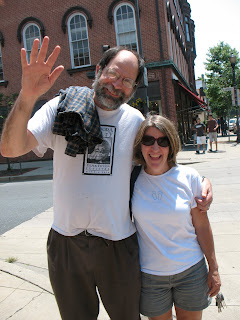
In 1995, I took a class from a fine poet named Nancy Johnson at Frederick Community College. I had been publishing essays -- personal narrative writing -- for years in newspapers and magazines, I had been writing magazine features and had even been a magazine editor, but now I wanted to turn my attention to fiction. Nancy taught me (among other things) that fiction grows naturally out of personal narrative -- the old "write what you know."
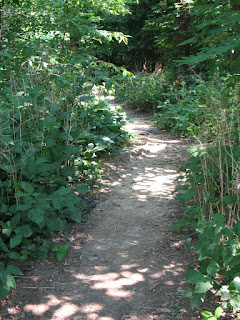
Now I tell my students that story comes from your head, your heart, and your gut: what you know and remember, what you feel, and what you can imagine.
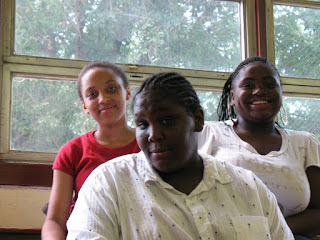 It's hard to write fiction without first understanding your personal narrative -- who you are and where you are from. This is especially important to know when writing with children. It's hard for fourth-graders, say, or middle-schoolers (aren't they beautiful?) or seniors in high school to sustain a fictional world when they haven't explored their place in their own world, when they aren't telling their own stories and understanding that those stories have heft and meaning and importance.
It's hard to write fiction without first understanding your personal narrative -- who you are and where you are from. This is especially important to know when writing with children. It's hard for fourth-graders, say, or middle-schoolers (aren't they beautiful?) or seniors in high school to sustain a fictional world when they haven't explored their place in their own world, when they aren't telling their own stories and understanding that those stories have heft and meaning and importance.
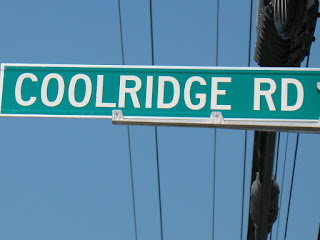 One of the first assignments Nancy gave our class was to write about a place. She had us LIST places first -- places we had lived, visited -- every place we could remember, large (Mississippi), small (the fort I made under the stairs), it didn't matter -- but a physical place.
One of the first assignments Nancy gave our class was to write about a place. She had us LIST places first -- places we had lived, visited -- every place we could remember, large (Mississippi), small (the fort I made under the stairs), it didn't matter -- but a physical place.
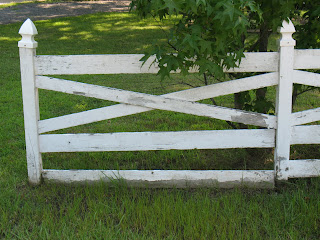
This is where notebooks come in handy. I listed and listed -- I brainstormed away -- nothing was off limits. This exercise was meant to get our memories flowing onto the page so that we could SEE them, physically, and choose one. One. You do the same. List... then choose one. Circle it. Choose one place you know, and write about it.
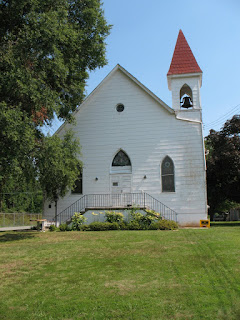 Don't skip the listing step. I still, to this day, begin writing by listing. When I listed for this exercise, "Mississippi" was the word I circled. It was the place I chose to write about. I narrowed it down to Jasper County, Mississippi, and all the summers I spent there with my grandmother (the real Miss Eula), surrounded by the smells of summer and people who would populate my dreams for years to come.
Don't skip the listing step. I still, to this day, begin writing by listing. When I listed for this exercise, "Mississippi" was the word I circled. It was the place I chose to write about. I narrowed it down to Jasper County, Mississippi, and all the summers I spent there with my grandmother (the real Miss Eula), surrounded by the smells of summer and people who would populate my dreams for years to come.
I wrote a poem (more on this Nancy Johnson exercise another day -- if I forget, remind me), and from that poem I began a picture book called MISS EULA GOES TO HAWAII. I sent that picture book manuscript to Liz Van Doren at Harcourt Brace in late 1995, and in February 1996, Liz called me and asked me if I'd be interested in working on this story with her.
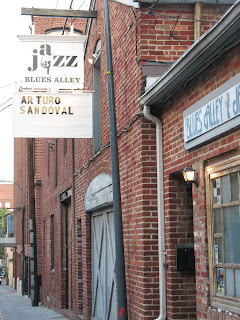
Would I? Would I! From the beginnings of trying to write for children to the day of this phone call, ten years had passed. Ten years of rejections, nibbles, more rejections, reading what I wanted to write, practicing, giving up, beginning again, joining a writer's group, leaving a writer's group, finding online support, finding solid resources (including this class at FCC), finding like-minded souls to travel with, and just plain hanging-in-there and refusing to give up -- perseverance. I had stories to tell -- I knew I did. I just needed to figure out HOW to tell them. Listing in my notebook helped me get started.
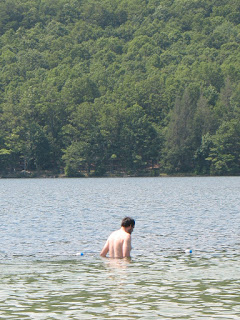 Two years into working with Liz on this picture book, she still had not bought it, the story got longer and longer, and I found myself writing a novel instead of a picture book. Liz gave me good advice at this point: "Let go of your memories, and tell me a story." And I learned to do that, to make that fictional leap. But all my memories -- all those lists -- were trusses for my stories. Without them, I would have no stories to tell.
Two years into working with Liz on this picture book, she still had not bought it, the story got longer and longer, and I found myself writing a novel instead of a picture book. Liz gave me good advice at this point: "Let go of your memories, and tell me a story." And I learned to do that, to make that fictional leap. But all my memories -- all those lists -- were trusses for my stories. Without them, I would have no stories to tell.
I left my day-job (freelancing everywhere) in 1997 in order to focus on what would become LOVE, RUBY LAVENDER. All told, it took me three years to get it right, to make it sellable, and another two years of revision before the book was published in 2001. Along the way, I wrote FREEDOM SUMMER, my first picture book, and sold it to Anne Schwartz at Simon & Schuster. It, too, comes directly out of my life and those notebooks that help me capture my life so I can SEE it, in front of me, in words, images (photographs help), thoughts, doodles.
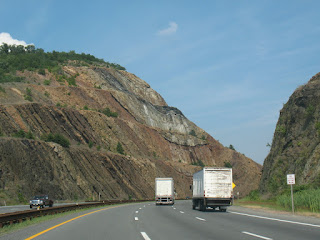 So.... what places do you know? And which one would you choose to write about today? It doesn't have to be a novel. Or even a picture book. How about a sketch? A poem? One paragraph of one moment in time you experienced in that place?
So.... what places do you know? And which one would you choose to write about today? It doesn't have to be a novel. Or even a picture book. How about a sketch? A poem? One paragraph of one moment in time you experienced in that place?
You can see some photos of Ruby's town, my Jasper County, here. I went back and took photos last summer. There are also some photos here, at my Life Notice on my website.
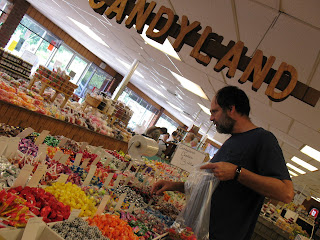
The places I'm showing you today were taken last week, during my scoot through Prince Georges County, Maryland, Frederick, D.C., and western Maryland. I've used my notebook to journal about each stop. I have photographs. And boy, do I have stories.
Any one of those memories I could mine for story. The present echoes the past... or does the past echo into the future? What I know is that my personal narrative -- my history -- informs my fiction.
RUBY is fiction, of course, pulled from personal narrative (as is LITTLE BIRD and ALL-STARS). RUBY narrates a place I knew, it remembers it in the golden light I loved to remember it in. FREEDOM SUMMER is also fiction, also pulled from personal narrative, and it narrates that same place in its not-so-shiny light. Both stories are true emotionally. And that's what I'm going for, in my fiction: emotional truth.
Fiction starts with discovering the emotional truth of your own life -- which can change, actually, with a deeper understanding of the people, places, and events that have defined you.

So pick that place. "You're gonna love this place I know." You can hear the song, sung by Petula Clark, here on YouTube. List, list, list. Pick your place. Pick one experience there. One clear moment in time. Circle it. Write short. Be true. Use telling details, and all your senses. If you need to write long at first, that's fine... you can cut later, and revise as your reason for writing about this particular place emerges... this is a gift of process.
Then write me -- share it with all of us -- what place do you know?
Place -- it's the backbone of story.
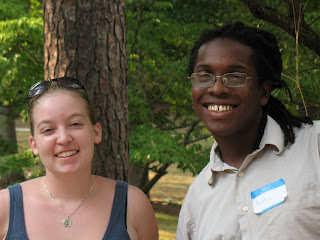 Many years ago, I read Charlotte Zolotow's OVER AND OVER to youngest daughter Hannah... over and over. To everything there is a time and a season; everything begins again, over and over, every day, every year.
Many years ago, I read Charlotte Zolotow's OVER AND OVER to youngest daughter Hannah... over and over. To everything there is a time and a season; everything begins again, over and over, every day, every year.
Hannah loved that book. So did -- do -- I. It is part of my personal canon. I want to do several posts on personal canons and hope to do that this summer -- what books influenced you most as a reader? A writer? A teacher? A parent? A human being. Be thinking about that.
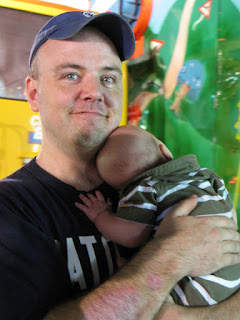
I look at Hannah now -- here she is, above, home on a break from her work for the Obama campaign (home in Atlanta, to hear Obama speak), with her friend and fellow volunteer Andrew -- and wonder how those books her father and I read over and over to her have influenced her, as she makes her own choices in the world.
Here is Mark, who grew up with my older kids. Now he is growing a family of his own. Over and over. Look at those intent, intense eyes! Full of joy and pride. And, is there a hint of exhaustion? Maybe more than a hint... lovely, though, so lovely.
Life repeats itself, and we grow older, our children grow older, the cycle begins again. Our lives have meaning to the extent that we tell our stories, save them in some form -- writing is just one way. But it is our job to share these stories.
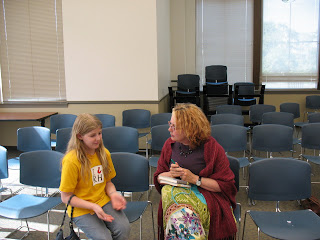 Look at this reader, sharing her stories with me! After my Urbana Library gig last week, when almost everyone had cleared out and, almost two hours later, it was time to pack up and go, this reader, who had waited and waited for a chance to be heard, shared her thoughts about LOVE, RUBY LAVENDER and EACH LITTLE BIRD THAT SINGS. Look at her expression, and look at her hands... she had me completed captivated. She was so earnest, so intense. She saw things in the books that I never intended to put there. That's what's exciting about giving up a book and putting it into a reader's hands. The story belongs to the reader then. And, the reader can not only relate her own experience to the story, she can tell her own stories -- she can share a bit of her own heart. I treasure this give and take.
Look at this reader, sharing her stories with me! After my Urbana Library gig last week, when almost everyone had cleared out and, almost two hours later, it was time to pack up and go, this reader, who had waited and waited for a chance to be heard, shared her thoughts about LOVE, RUBY LAVENDER and EACH LITTLE BIRD THAT SINGS. Look at her expression, and look at her hands... she had me completed captivated. She was so earnest, so intense. She saw things in the books that I never intended to put there. That's what's exciting about giving up a book and putting it into a reader's hands. The story belongs to the reader then. And, the reader can not only relate her own experience to the story, she can tell her own stories -- she can share a bit of her own heart. I treasure this give and take.
Over and over, story is reborn, refined, remade. What is your story?
What is THIS guy's story? Ha!
Jim meets Moose, at friend Sue's home.
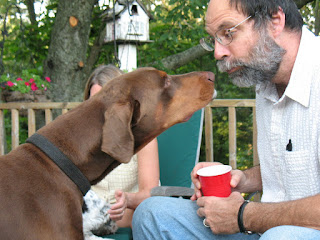
Find an old photograph -- or a new one -- these are all new photographs from last week -- and tell your story. So many of you wrote me to say you had had heart palpitations over Frankie Avalon -- well... what was that like? Tell a story.
 Tell a story of old places. I remember, over and over, mowing this grass, for 25 years... I know intimately the terrain around each tree. Now I am learning a new terrain, in Atlanta, a new garden of my own construction, and I am making new memories, new stories.
Tell a story of old places. I remember, over and over, mowing this grass, for 25 years... I know intimately the terrain around each tree. Now I am learning a new terrain, in Atlanta, a new garden of my own construction, and I am making new memories, new stories.
 Over and over I revisit old friends. We break bread together and catch up with one another, telling story after story.
Over and over I revisit old friends. We break bread together and catch up with one another, telling story after story.
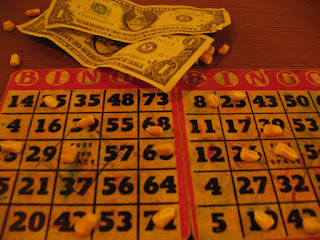
Over and over I play Bingo at the fireman's carnival under the stars, using corn kernels for markers. Ten cents a card, three cards for a quarter, and a big two bucks for a single winner of any game of Bingo. I won! I won! (I do not win, over and over!)
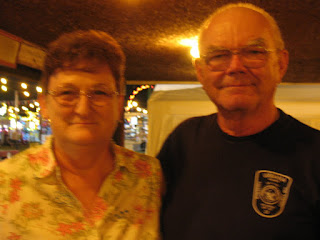
Over and over, I run into old neighbors, new neighbors, folks who are full of stories to tell.
Over and over we get the chance to tell our stories, until.... we don't anymore.
One of my very best friends in the world has just had that choice taken from her. Her mind is not cooperating with the rest of her body, and her stories lay mute for now. How I miss her, even though she is still here.
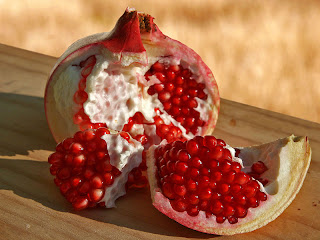
We never know. We never know when, over and over, we are no longer able to share our stories.
Share now. Share while you can. Look at all these pomegranate seeds... so many seeds -- stories -- inside each fruit. Dust off that notebook. Sketch out some memory, some moment, give it some meaning. Tell your stories, while you remember. There is no better time or place than now. Over and over.
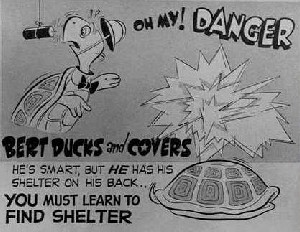 Look what I found on YouTube while researching END OF THE ROPE, my 1962 novel and the first of the Sixties Trilogy!
Look what I found on YouTube while researching END OF THE ROPE, my 1962 novel and the first of the Sixties Trilogy!
Here is the VERY (well, maybe not THE VERY, but it's VERY, VERY CLOSE)... the film I saw in elementary school about Bert the Turtle and ducking and covering and how to protect oneself against the dreaded Communist Nuclear Attack.
Oh, HOW this brought back memories... not only of those duck-and-cover air-raid drills (which I just finished writing about in chapter two of the new novel), but look at the way we dressed, look at how classrooms looked, how teachers dressed, how society structured itself... and notice that, in this nine-minute film, there is not one black face. Not one Indian or Latino or Asian face.
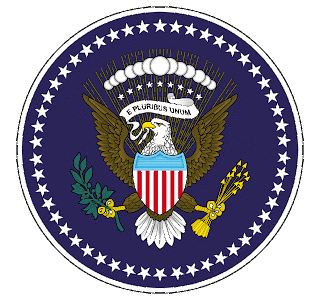
I'm writing (as a fictional story) my days at Camp Springs Elementary School in Camp Springs, Maryland. I'm writing about Andrews Air Force Base, where my father was stationed for seven years and was, for his last years there, Chief of Safety for the 89th MATS -- SAM FOX -- the squadron that flew (and still flies) the President of the United States. I'm writing about "the Communist threat." I'm writing about 1962, the space race, the Cold War, the Cuban missile crisis. I'm writing out of my life. (The patch below calls Sam-Fox the 99th -- anybody know why?)
From a research standpoint, there is so much I'm still culling through. And, from a fictional standpoint, creating these characters and their stories out of whole cloth, there is still so much I don't know.
I was nine in 1962. Franny, my heroine, is twelve. But her brother, Drew, is nine. Franny is a middle child. Drew is the youngest and only boy; he can do no wrong in the eyes of his parents. And why is that? WHY? I have struggled with this for so long from a story point-of-view... it's okay for Drew to be the golden child, but I want, as the writer of the story who is creating 1962 (and, in addition, if I do my job well, a universal story) for the reader, to know WHY Drew is the golden child.
He had rheumatic fever last year. That's what happened to Drew... and that's what happened to his family. Ohmygolly. OHMYGOLLY. This changes so much. I have been working on this novel, off and on, and now relentlessly, for over ten years. I had no idea about rheumatic fever... don't really understand what it is. But my friend MikeM., who was born a year after I was... he understands.

Long ago, maybe almost twenty-five years now, MikeM. told me about his struggle with rheumatic fever when he was 12. His heart was forever damaged... and seven years ago, MikeM. had a stroke, partly as a result of the rheumatic fever... so he has been much on my mind, and now I see that my undermind has been chewing on this story...
... and suddenly, sitting here at the page, day after agonizing day, trying to figure out the relationship between Franny and her brother Drew, it comes to me, out of the ether, that Drew has survived rheumatic fever, and his family is so concerned for him, so worried about his health, his future... and I think, "why didn't I see this ten... five... two years, two MONTHS ago?"
Well... because it wasn't time yet. I could cite you chapter and verse that may or may not be right or true about how these things happen. I could say that my friend MikeM. came to our big family celebration in May and I hadn't seen him for some time and that, after that, I started thinking more and more about his life and our connection, and somehow his account of the harrowing rheumatic fever days of the early '60s crept into my consciousness as I wrote forward on this novel... and maybe that would be true.
And maybe not.
I don't know. But I do know that I wrote about these conversations, and those memories, in my notebooks -- twice. I wrote about it when MikeM. first told me this story, probably in 1980 (I have not looked up the particular notebook although I have it; I have a stack of old notebooks, as high as my waist, in my closet), and again in May this year, when I wrote for myself a wrap-up of the party. So somewhere, this fact was working on my subconscious, which is where Story is born.
We write out of our lives, whether we realize it or not. And we have to trust that what we need will be there when we need it, even if we cannot know what it is.
I think that Drew having had rheumatic fever fits so well into the fact that he projects such bravado now (he is convinced, for one thing, that he will be an astronaut), and it fits so well into my whole "we may be annihilated tomorrow" theme of this novel... I can hardly express this to you in a cogent manner, so I won't try any longer, except to say that I have felt so bereft about this revision in these past several weeks of slogging, even in the face of steadfast support from editors and agents and writer friends and a couple of select readers.
But, finally, I am learning and re-learning that it is only BIC -- Butt In Chair -- that saves me... isn't that amazing?
All the people you love and trust can tell you you're doing a good job, but you know when the story sings.. you know it, don't you? You know. Okay, I know... I can only speak for myself. But I know when I'm cookin' with gas, and this only happens when I am willing to keep my B in the C and SIT HERE with the story at hand, and be willing to jump down those dark rabbit holes and climb back up again, and try one thing and then another and then, suddenly, though a process I cannot begin to understand (let alone articulate, as you can see), say, "OHMYGOLLY! Drew had scarlett fever last year!"
And that explains everything.
Maybe you had to be there.
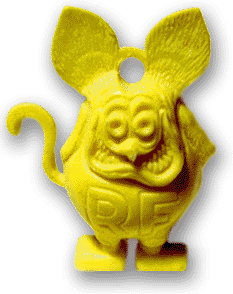
I've also got these l'il creatures mentioned in END OF THE ROPE. Franny has quite a collection of them, and she also calls her brother one of these... anybody know what they are?
Film at Eleven.
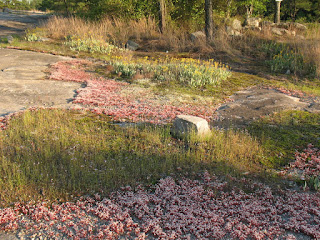 In a couple of hours, I head for Montgomery, Alabama, to participate in the 3rd annual Alabama Book Festival. If you are near Montgomery, come see me at 1pm at Old Alabama Town, the restored Montgomery downtown. I'm on stage directly after Rick Bragg. I was born in Alabama, and I always love going home.
In a couple of hours, I head for Montgomery, Alabama, to participate in the 3rd annual Alabama Book Festival. If you are near Montgomery, come see me at 1pm at Old Alabama Town, the restored Montgomery downtown. I'm on stage directly after Rick Bragg. I was born in Alabama, and I always love going home.
I've been immersed in the writing this week, so I've been up and down Stone Mountain several times, and I took my camera so I can show you my writing partner. I did not bring my notebook -- stay tuned. The photo above is the mountain in springtime -- you wouldn't think there is so much life exploding on a big piece of rock, but there is. All year long, the mountain changes clothes as the seasons pass, and the mountain waits for me, so I can tell it my stories.
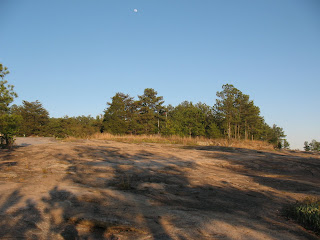
This is my path up. See the moon? Just before dusk is my preferred walking time. You'll see my shadow in some of these photos as well -- the sun is directly behind me.
Stone Mountain is a monadnock and the largest piece of exposed granite in the world. Folks come from the world over to see it. I have never walked the mountain that I have not heard someone speaking in Chinese, or Spanish, or (very often) French, or Bengali, or... you get the picture.
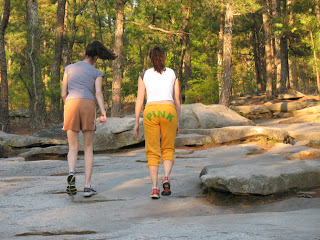
I am never alone when I walk up the mountain. Some days are crowded (especially when school kids come in buses) and some are sublimely quiet. Here are two energetic walkers -- look at that pony tail swinging! They passed me handily, but that's fine... my walk is a more meditative affair. I mean it to be that way.
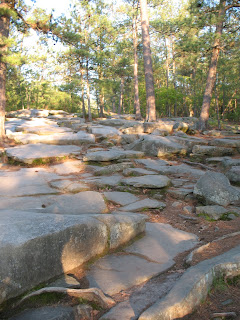 It takes me time to negotiate the steppes, as I call them. I savor each step I take, and I let my mind go, after its hours-long wrestling with the story I'm writing. And as I let it go, the mountain catches it and lobs a thought back at me. Maybe she has a secret she can't tell her best friend! What about her mother? Is her mother approachable? Is she likable... yet? Is that word spelled correctly?
It takes me time to negotiate the steppes, as I call them. I savor each step I take, and I let my mind go, after its hours-long wrestling with the story I'm writing. And as I let it go, the mountain catches it and lobs a thought back at me. Maybe she has a secret she can't tell her best friend! What about her mother? Is her mother approachable? Is she likable... yet? Is that word spelled correctly?
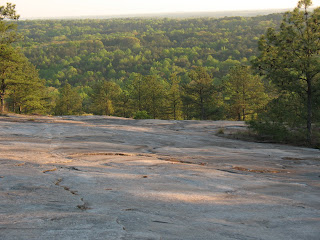
A quarter of the way to the top, I am rewarded with this view. They don't call Atlanta "The City of Trees" for nuthin'.
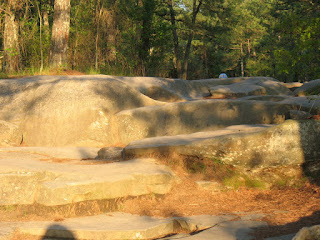
Then it's back to climbing. Even at my meditative pace, the climb is demanding, and my heart rate soars -- this is a good workout. (WW this week: minus 24.2 pounds -- finally moving away from that plateau I've been on for almost two months.)
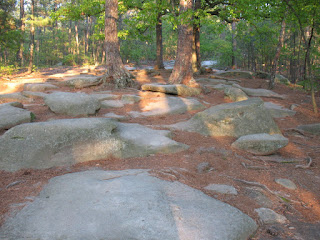 I used to bring my notebook on these walks, then I stopped. As much as I advocate and encourage using a notebook for capturing your thoughts, ideas, and stories, there is a time and place for notebooks, I have found. And, there is the risk of not being able to remember a dang thing without writing it down, if I always use a notebook instead of relying on my memory.
I used to bring my notebook on these walks, then I stopped. As much as I advocate and encourage using a notebook for capturing your thoughts, ideas, and stories, there is a time and place for notebooks, I have found. And, there is the risk of not being able to remember a dang thing without writing it down, if I always use a notebook instead of relying on my memory.
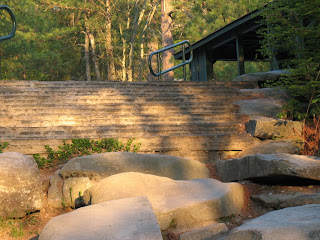
I love the challenge of remembering. At first, I was scared that, walking the mountain without my notebook, I would hit on a great fix or a terrific idea or a perfect way to write that passage I'm struggling with, only to lose it before I could get home and record it.
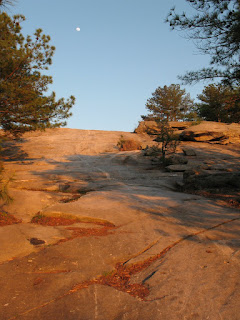 And it's true that, sometimes, the ideas and the suggestions and the answers to story knots come so fast and furious, I instinctively reach for my notebook and panic for a second when I know it's nowhere near me.
And it's true that, sometimes, the ideas and the suggestions and the answers to story knots come so fast and furious, I instinctively reach for my notebook and panic for a second when I know it's nowhere near me.
Not to worry. I have learned to trust that I will remember. And what I don't remember... well, that's okay, too. I am going to remember what is most important. I have found that this discipline of walking up and down Stone Mountain (or weeding the garden, even taking a shower) is a way for my mind to think in another direction, without the structure of the page, and this is good.
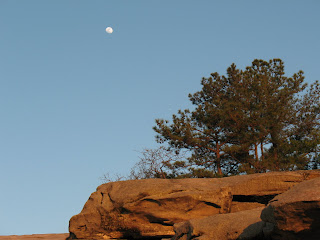
It's like deep breathing (which I certainly do on the mountain as I huff my way up) or writing in free verse after having spent the day working in form.
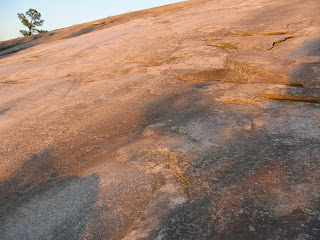
If you walk the mountain enough, you begin to see familiar faces. Here's Tony, or Guitar Guy, as I used to call him. Tony walks the mountain playing his guitar several times a week. I believe I have heard his entire repertoire. Today he is singing "Gloria" -- G L O R I A!
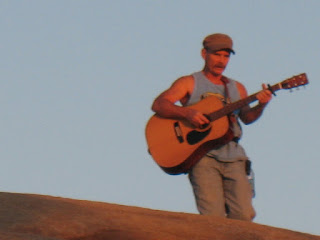
Tony tells me this is his 60th trip up the mountain this year. "I get in 240 to 250 trips a year. Just about every 48 hours, you find me up here, singing and walking." Yep.

And here is the city of Atlanta, rising up from the trees, bathed in the haze of the setting sun -- it's clearer than this, today, but my camera batteries are low, and the sun is brilliant in my eyes, and this is as good as it gets in this setting-sun moment... and that's pretty good. I have grown to love Atlanta. It's full of that Uncle Edisto messy glory, just like most of life. There is a lot here to love.
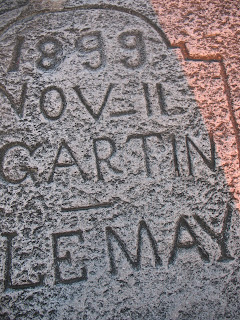
Stone Mountain is one of the places to love. Native Americans hiked over it many years ago. In the not-s0-distant past, Ku Klux Klan meetings were held on this mountain. Today, people of all persuasions, colors, and languages claim this piece of rock as a personal mountain and a holy place. I certainly do.
I wrote about Little Altars Everywhere not long ago. I asked you to write in your notebooks about those little altars you create all around you.
Now, put your notebooks aside. Rachel Carson wrote, "I sincerely believe that for the child, and for the parent seeking to guide him, it is not half so important to know as to feel."
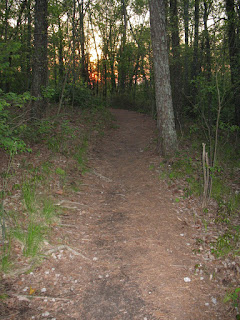
So, let's feel for a moment. Let's feel deeply, in the way that small children do instinctively. Let's hope and yearn and remember and find that place of inspiration within us... which sometimes we can best discover by visiting a place outside of our created spaces. An altar already there, waiting for us.
You don't have to write it all down. Sometimes it's good to let go of thinking, to let your mind rest, and feel the release that comes from taking a deep breath and spending time in the cathedral of your heart.
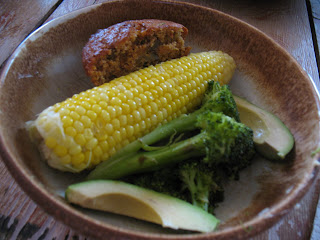 Got home safely, braved the welcome weekend rains, and did my usual re-entry: eat well, sleep much, work little.
Got home safely, braved the welcome weekend rains, and did my usual re-entry: eat well, sleep much, work little.
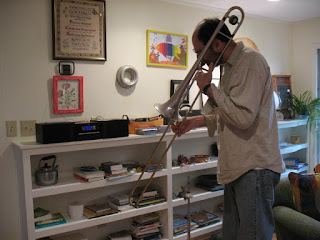
Laughed as Jim, former high school trombone player, accompanied radio jazz on his trombone. It was pretty good! We celebrated, too, as Jim's jazz is now being heard on television -- he has licensed tunes that are now part of GREEK and LIPSTICK JUNGLE (television shows we'd never heard of, but now we've watched them!).
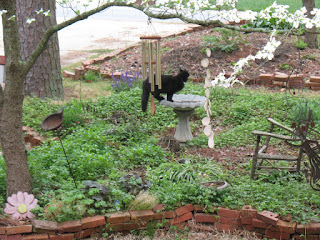
Sat on the front porch between rainstorms and watched Cleebo drink from the bird bath.
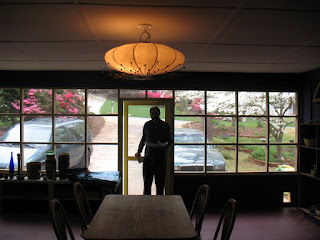
Admired Jim Williams' handiwork in the carport (see the dogwoods and azaleas blooming?) -- which needs a name. Right now we're calling this room "Irene." My Jim suggests "Alice in Wonderland," since there is so much odd (and luscious) color and shape in this room. Do you have a suggestion?
 Jim Williams installed the transom windows (there are three) and the light -- what do you think of the light? It needs a name, too.
Jim Williams installed the transom windows (there are three) and the light -- what do you think of the light? It needs a name, too.

Here's a closer look. Found it at Kudzu in Decatur and snapped it right up. Jim calls it an alien jellyfish light.
Kids came for brunch on Sunday, but I was having too much fun savoring their company to take photos. Birder friend Jerry came over, too, with his binoculars, and we began making a list -- in my notebook, of course -- of all the birds we saw in my back yard.

Now... I am not a birder. I know by sight robins, blue jays, cardinals, and a few others. So I've decided, for this back yard bird project (it wasn't planned, it just came up as we sat there and Jerry kept finding more -- and more -- beautiful birds) I'm going to devote a notebook page to each bird we found and paste in there a picture of each bird so I can know what I'm looking for. I might even buy a pair of binoculars.

Jerry has this cool recorder that plays different bird songs, too. "What's that screeching bird I've been hearing early in the mornings?" I asked. "Like this?" Jerry played me a bird "song." "That's it, exactly," I said. "Those are baby great-horned owls!" said Jerry.
Well! I know we have great-horned owls here. I have heard them, many a morning when I'm writing at 5am, ending their hooting as the dawn comes and the day birds take over.
 Sitting outside, learning to look for an hour yesterday afternoon, was therapeutic. I saw a pine warbler up close -- and you'd better believe you'll see the appearance of a pine warbler in my next book, in much the same way "blue jays chitter-chattered in the pines" on page one of THE AURORA COUNTY ALL-STARS.
Sitting outside, learning to look for an hour yesterday afternoon, was therapeutic. I saw a pine warbler up close -- and you'd better believe you'll see the appearance of a pine warbler in my next book, in much the same way "blue jays chitter-chattered in the pines" on page one of THE AURORA COUNTY ALL-STARS.
Or maybe I'll mention the other birds that have taken up residence in my trees: we've got Carolina wrens, orange-crowned warblers, and even bluebirds -- saw them with my own eyes, unaided by the binoculars. I'm
putting up a bluebird house, immediately.
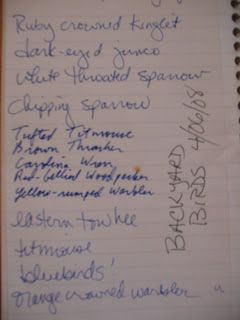
I am home for two weeks before the next travel. Two weeks to work on book one of the Sixties trilogy before a chunk of it is due to my editor. So, tomorrow, I'm going to talk about this trilogy (avec its pine warbler) and ask you your thoughts as well. Today I'll take care of the week's errands and business so that, starting tomorrow, I can push forward in long writing hours. Tomorrow is a work-lots day. A Sixties day. Far out.
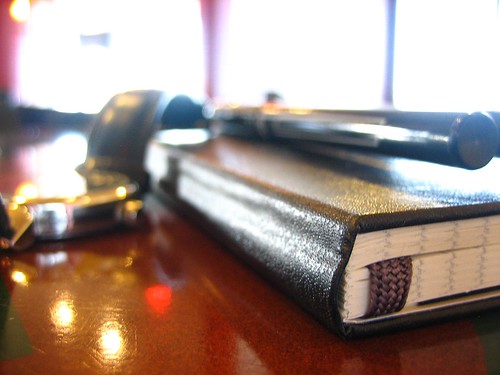 Happy Friday, kids. In honor of this upcoming weekend without blog posts, dayjobs or Google Reader reading, I have three ways to shake up our writing over the next two days.
Happy Friday, kids. In honor of this upcoming weekend without blog posts, dayjobs or Google Reader reading, I have three ways to shake up our writing over the next two days.
First of all, following Darby M. Dixon III's one-sentence post (that's his notebook photograph over there), let's all write in a notebooks instead of computer this weekend.
All my important drafts begin on paper--I think faster, I write differently and I love fluttering through pages and pages of inky drafts. Thanks to Erika Dreifus (who blogged this funny thing too).
Then, let's all jump back on the computer and excise (via find and replace wonderfulness) the seven deadly words of book reviewing from our work. For extra credit, surf the comments for a bazillion new words that drive readers crazy.
Finally, let's all change how we eat lunch--and get off the computer all over again. Just read this burnout avoidance article by Susan Johnston (our buddy from The Urban Muse):
"Three quarters of American workers (including yours truly) eat their lunches at their desk at least a few times a week. It’s tempting to stay put when you’re absorbed in a project or if it feels like everyone else is putting in that extra face time. But trust me, you’ll feel better after you take a few minutes away from your computer."

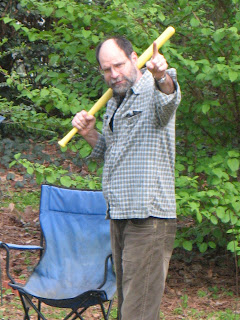 According to Wikipedia, the major league
According to Wikipedia, the major league
baseball season begins in April and lasts until September. In 3 days, 23 hours, 27 minutes and 5 seconds, according to their website, the Atlanta Braves play their opening game. But here, just up the road from Turner Field, we've got everybody beat. At my house, the whiffle ball season has already begun. Here's Jim, standing in the batter's box, next to the blue chair (which is the strike zone and substitute catcher), doing his best Babe Ruth imitation, pointing to where he's about to hit that whiffle ball.
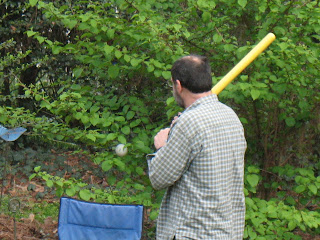
And here's Jim watching that whiffle ball float by.
We play serious whiffle ball. No, we don't. But on Easter Sunday, spring fever smacked us silly. We rose to the challenge.
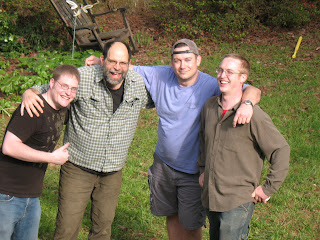
Some of us actually hit the ball. And all of us had a good time.
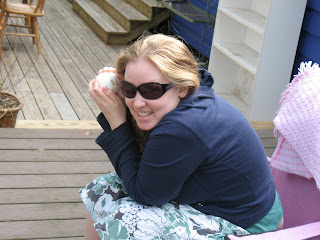
Even those who stole the ball after it was all over.
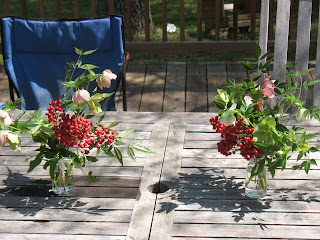
I found this old teak table at Kudzu in Decatur and brought it home. We ate Easter dinner on the back porch at this table; I gathered the lenten roses and nandina from my gardens.
Spring is everywhere in Atlanta -- the Bradford pears are already done blooming and have leafed out. My dogwoods are about to pop. The forsythia is long gone to green. Soon the pine pollen will coat the world with a golden glow and the grass will be thick and feisty again. The riot of color that is Atlanta in springtime is about to careen at fever pitch through the month of April. I'm going to careen right along with it. I've got spring fever, myself.
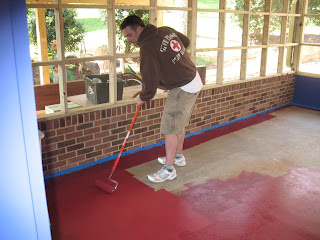
I've been moving bricks and digging in the dirt and pulling weeds and organizing cabinets and throwing out stuff and watching my carport floor turn red and climbing Stone Mountain and eating my vegetables and listening to good friends play music and writing about all of it in my notebook, keeping list after list, plotting and planning and figuring and cataloguing and more -- it's my way or organizing my mind and my world in the midst of all this green, this spring, this possibility.
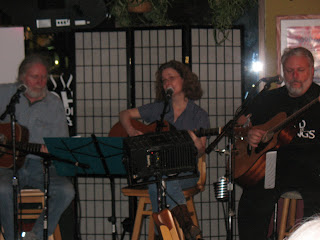
And, I'm writing. I'm in the midst of a challenge, actually, that I want to share with you after I've returned from Florida. Tomorrow I fly to Orlando, where I'll speak to teachers at the Polk County Reading Association -- it's their first conference and I am psyched to be their speaker. They are expecting 250 in attendance -- they are off to a great start -- yay, Polk County teachers! Good for you.
I'm back Friday, when we'll celebrate Hannah's 22nd birthday. Maybe we'll play whiffle ball, if I can convince her to give us back the ball.
A couple of updates:
 -- Comments are turned on.
-- Comments are turned on.
-- WW: I have hit the dreaded plateau -- what do y'all do here? But hey -- I'm holding steady at -22 pounds.
-- Remember my next-door neighbors who hated my new house colors? They spent part of their Easter weekend planting trees on the property line between our houses. I made myself go out and wave. It's okay. They waved back. If I can express myself, so can they. So be it.
Happy Spring, everybody. Thanks for hanging out with me here.
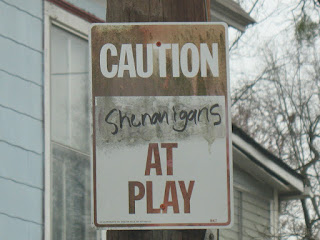
Yo! Little Altars Everwhere, Indeed! Yesterday's post on personal altars has generated so much mail (already -- you've got altar stories to tell, and you are passionate about them!), much of it asking, "Why can't we comment directly on your blog?" or "How can we comment on your blog?" Well... you can't comment directly on the blog, but you CAN reply to moi, The Pomegranate Queen, if you want to. You can click on the email link on the left, which will take you to my website calendar page and an email address, and if you click directly on the email address (inquiry at deborahwiles dot com), your email will come directly to me.
The link doesn't work if you cut and paste it into your address book or bar; you must click on the link on the calendar page. I think, also, that if you are an email subscriber and you just hit reply in your email, your mail will come directly to me -- that's what it looks like, anyway, judging from my email responses.
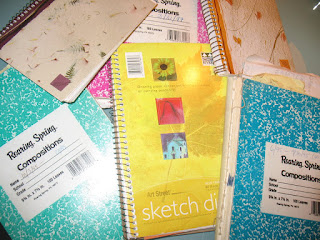
I set up the comments section this way to keep spam to a minimum, and because I have found that lots of folks want to comment and have a conversation, but the comments section of the blog is too public for them -- I know it is for me, too. I may be reading your blog appreciatively (and I have a growing list of those I love and will list them on this blog, eventually), but commenting publicly isn't my thing... I might shoot a private email to a blogger, but I rarely respond in a public forum. I'm a notebook kinda gal: I will paste stuff in my notebook that I love, I will stuff it full of photos, I will respond to a challenge in my notebook... you've read my challenges to you, here, in these blog pages. It's not necessary for you to respond to me directly; the important thing is that you respond to your own response... if that makes sense. (NancyJ, help me out here.)
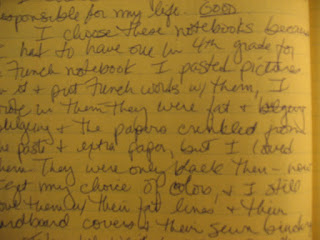 I can go back through my old notebooks and read so much about my own response to the world, to what I've read, to something I've experienced. The photo at left is a from a notebook entry over ten years ago, before I started publishing books, when I was a freelancer. It catalogs why I keep a notebook -- this is just a snippet from a longer piece, thinking things out... I find out who I am by writing it down, discovering what I think and feel. Others use other methods -- work, art, science, mathematics, music, digging in the garden, climbing the mountain, parenting, solitude, and there is, of course, no one right way. I myself tend to use a combination of ways. ("I myself"! ha.)
I can go back through my old notebooks and read so much about my own response to the world, to what I've read, to something I've experienced. The photo at left is a from a notebook entry over ten years ago, before I started publishing books, when I was a freelancer. It catalogs why I keep a notebook -- this is just a snippet from a longer piece, thinking things out... I find out who I am by writing it down, discovering what I think and feel. Others use other methods -- work, art, science, mathematics, music, digging in the garden, climbing the mountain, parenting, solitude, and there is, of course, no one right way. I myself tend to use a combination of ways. ("I myself"! ha.)
I used to wish I could write to, could know, those people whose lives and work have meant so much to me. That wish has morphed into a gratefulness that I have their words and their work to draw from, as they inform my life (more on this, next week, with influences and personal canons). Now I think that the best use of my gratefulness is to incorporate what I have learned from these folks into my life and work. That's what I try to do, anyway. And even though I read and love several blogs and keep one myself, which is such a public statement, I still lead a very private life, and still feel that commenting on a blog publicly is too public for me. It's weird, I know. I haven't figured it out yet.
Another point about comments: Blogger isn't set up for me to answer public comments, as I don't get your email address when you comment on Blogger (unless you are a Blogger account holder), so conversation is lost at that point.
Do y'all know a better way to do this, to deal with comments? SallyS wrote, "It's not really a blog without comments," and BobT wrote, "We could benefit from hearing what others say about their personal altars, or how they use their notebooks, or teach writing..." etc.
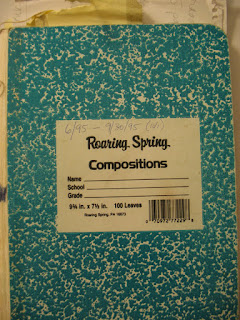
I have to think about that, as I didn't start blogging to be a clearinghouse for ideas and information, and I don't even read the comments on blogs that I love -- they don't feel important to me (is this heresy?). What feels important is my relationship (hidden, private, but in a public forum) with the writer of that blog... I'm connecting with what he/she is saying, I'm nodding my head, I'm learning something new, I'm linking to things I didn't know about but want to know, I'm educated, informed, inspired, humored... connected.
And truthfully, I'm still in the throes of a love/hate relationship with blogging, and some days it feels vain to blog at all (not to mention nekkid-making), which is why I'm experimenting with writing about exactly what I want to write about and not worrying about a readership. This seems to work, for me.
I also think it's important to face my tendency to disappear into a cave when I'm home and to keep my self sheltered from the world (hence, the nekkid-making feeling surrounding blogging). Not that this is a bad thing; it isn't, it's good for me. But I tend to get squirrely-alone after a while and I need to be reminded that connection is important and good. I sometimes think I could sit in my cave, alone-like, forever. But I can't -- and don't want to. I'm a writer who espouses being honest and true in one's writing -- well, let me be honest and true in my blogging. I say I believe in connections, that we are all connected... well, blogging is my way of connecting, especially as I move into a sabbatical time in my traveling, which I will write about, right here, soon.
Then there is the competitive nature of blogging, which is so unreal and unsavory, and which I've detached from in a big way by having no public comments. It's also weird to have 1 comment or 3 comments or 0 comments on Blogger, but have 37 comments in my email inbox... I'm in competition with myself at that point! I find that most folks prefer to comment privately. So that's how I've kept your comments, as a private conversation.
Still, I'd like to learn more and be educated. If you feel there's another, better way, let me know. If you think I'm spot-on and that this way of dealing with comments is working, send me some validation! And if you think I'm Just Plain Weird... well, that's okay. Maybe don't tell me that. I'm struggling with weirdness these days, as I feel my way into a new way of living, as Hannah (the youngest of four) graduates from college, as I prepare to take time off from travel and immerse myself in the Sixties trilogy, as I plan a huge family celebration party (I don't know how to do this) for May 10 and yet head out on the road in April. May The Force Be With Me.
And thanks for your phone call about these matters, Man of La Mancha. (More on this guy and his first theatre role, soon -- for now, let me just say, get thee to San Francisco in May!)
Off to finish reading comments... with permission, I'll post some of them here next week -- altars, little altars everywhere -- wow. Y'all knock me over with your stories. Thanks.
View Next 3 Posts
 In December I wrote about being ready to receive – and record – ideas whenever and wherever they come. I also mentioned a few tools I use to capture inspiration when the moment strikes, such as special notebooks, digital recorders (I use an Olympus VN-6200PC), Dragon Dictation (an app on my iPhone that turns my voice into instant text), and the Notes app which looks like a post-it note or yellow legal pad in digital form. Other folks I know use Post-its or index cards and move them around the floor or the wall. Many use Google Docs – which can be accessed from any where in the world via computer, as everything is stored in ‘the cloud.’
In December I wrote about being ready to receive – and record – ideas whenever and wherever they come. I also mentioned a few tools I use to capture inspiration when the moment strikes, such as special notebooks, digital recorders (I use an Olympus VN-6200PC), Dragon Dictation (an app on my iPhone that turns my voice into instant text), and the Notes app which looks like a post-it note or yellow legal pad in digital form. Other folks I know use Post-its or index cards and move them around the floor or the wall. Many use Google Docs – which can be accessed from any where in the world via computer, as everything is stored in ‘the cloud.’








 It's hard to write fiction without first understanding your personal narrative -- who you are and where you are from. This is especially important to know when writing with children. It's hard for fourth-graders, say, or middle-schoolers (aren't they beautiful?) or seniors in high school to sustain a fictional world when they haven't explored their place in their own world, when they aren't telling their own stories and understanding that those stories have heft and meaning and importance.
It's hard to write fiction without first understanding your personal narrative -- who you are and where you are from. This is especially important to know when writing with children. It's hard for fourth-graders, say, or middle-schoolers (aren't they beautiful?) or seniors in high school to sustain a fictional world when they haven't explored their place in their own world, when they aren't telling their own stories and understanding that those stories have heft and meaning and importance. One of the first assignments Nancy gave our class was to write about a place. She had us LIST places first -- places we had lived, visited -- every place we could remember, large (Mississippi), small (the fort I made under the stairs), it didn't matter -- but a physical place.
One of the first assignments Nancy gave our class was to write about a place. She had us LIST places first -- places we had lived, visited -- every place we could remember, large (Mississippi), small (the fort I made under the stairs), it didn't matter -- but a physical place.
 Don't skip the listing step. I still, to this day, begin writing by listing. When I listed for this exercise, "Mississippi" was the word I circled. It was the place I chose to write about. I narrowed it down to Jasper County, Mississippi, and all the summers I spent there with my grandmother (the real Miss Eula), surrounded by the smells of summer and people who would populate my dreams for years to come.
Don't skip the listing step. I still, to this day, begin writing by listing. When I listed for this exercise, "Mississippi" was the word I circled. It was the place I chose to write about. I narrowed it down to Jasper County, Mississippi, and all the summers I spent there with my grandmother (the real Miss Eula), surrounded by the smells of summer and people who would populate my dreams for years to come.
 Two years into working with Liz on this picture book, she still had not bought it, the story got longer and longer, and I found myself writing a novel instead of a picture book. Liz gave me good advice at this point: "Let go of your memories, and tell me a story." And I learned to do that, to make that fictional leap. But all my memories -- all those lists -- were trusses for my stories. Without them, I would have no stories to tell.
Two years into working with Liz on this picture book, she still had not bought it, the story got longer and longer, and I found myself writing a novel instead of a picture book. Liz gave me good advice at this point: "Let go of your memories, and tell me a story." And I learned to do that, to make that fictional leap. But all my memories -- all those lists -- were trusses for my stories. Without them, I would have no stories to tell. So.... what places do you know? And which one would you choose to write about today? It doesn't have to be a novel. Or even a picture book. How about a sketch? A poem? One paragraph of one moment in time you experienced in that place?
So.... what places do you know? And which one would you choose to write about today? It doesn't have to be a novel. Or even a picture book. How about a sketch? A poem? One paragraph of one moment in time you experienced in that place?



 Look at this reader, sharing her stories with me! After my Urbana Library gig last week, when almost everyone had cleared out and, almost two hours later, it was time to pack up and go, this reader, who had waited and waited for a chance to be heard, shared her thoughts about LOVE, RUBY LAVENDER and EACH LITTLE BIRD THAT SINGS. Look at her expression, and look at her hands... she had me completed captivated. She was so earnest, so intense. She saw things in the books that I never intended to put there. That's what's exciting about giving up a book and putting it into a reader's hands. The story belongs to the reader then. And, the reader can not only relate her own experience to the story, she can tell her own stories -- she can share a bit of her own heart. I treasure this give and take.
Look at this reader, sharing her stories with me! After my Urbana Library gig last week, when almost everyone had cleared out and, almost two hours later, it was time to pack up and go, this reader, who had waited and waited for a chance to be heard, shared her thoughts about LOVE, RUBY LAVENDER and EACH LITTLE BIRD THAT SINGS. Look at her expression, and look at her hands... she had me completed captivated. She was so earnest, so intense. She saw things in the books that I never intended to put there. That's what's exciting about giving up a book and putting it into a reader's hands. The story belongs to the reader then. And, the reader can not only relate her own experience to the story, she can tell her own stories -- she can share a bit of her own heart. I treasure this give and take.
 Tell a story of old places. I remember, over and over, mowing this grass, for 25 years... I know intimately the terrain around each tree. Now I am learning a new terrain, in Atlanta, a new garden of my own construction, and I am making new memories, new stories.
Tell a story of old places. I remember, over and over, mowing this grass, for 25 years... I know intimately the terrain around each tree. Now I am learning a new terrain, in Atlanta, a new garden of my own construction, and I am making new memories, new stories. Over and over I revisit old friends. We break bread together and catch up with one another, telling story after story.
Over and over I revisit old friends. We break bread together and catch up with one another, telling story after story.







Ah, me! What a brilliant post. Ink well monitors and pencils sharpened with a bread knife. My five things:
1. Pilot V Ball liquid ink pens. If I could, I'd ban biros from the house.
2. Camomile tea (and, of course, chocolate).
3. An inspiring illustrated reference book.
4. A decent thesaurus or access to an online version.
5. Hand cream, lip salve, essential oils, chewing gum - all things to distract myself with.
I too am a stationery freak! And will NEVER write with a biro. I love notebooks and have loads and loads of them even though I write straight on to the computer. Go figure!
And I used to write in cafes a lot when my elder daughter was at playgroup. Wrote most of my first few books in a cafe called Silvio's in Didsbury, Manchester. Nowadays I mostly write at home, staring at a beautiful Venetian notebook propped up on my desk to remind me of how beautiful stationery can be.
Am tempted to put chocolate, chocolate, chocolate, chocolate, chocolate... but close behind comes:
2. Money
3. Quiet/safe place to write
4. A good editor
5. Understanding friends
and, of course, chocolate...
Great post. I loved seeing what you can't live without! Really makes me think. I too love the right kind of notebooks and paper - but only i know what that is!
Great to see what you would all choose. I agree with the reference book Karen, I can spend hours perusing those for no reason. Glad I'm not the only stationary freak, Adele. Chocoholics anonymous, that's us Katherine. And Megan has a secret in relation to paper. Coo!
1. My thesaurus
2. A clipboard
3. A 0.5 pilot liquid ink black pen
4. Permission to go to interesting places to do research
5. A beautiful view
(And chocolate. And coffee. And praise.)
(so much for 5!)
Adèle, I understand the beautiful notebook habit and use my for note-making.
Sadly I have eschewed (rather than chewed) all chocolate and other delicious treats until I have lost some more weight, so my list is this:
1. Black coffee
2. A cat companion
3. Radio 4 (until 12 noon, when Radio 3
4. My laptop (currently a sore topic)
5. Enough light.
If I have all those I hope and trust that things like Miriam's inspiration will come.
Bummer. I logged on to distract myself from a sudden desire to bake (and eat) a chocolate cake...may as well just go turn on the oven, so.
Do we all have a stationery fetish? It must be something to do with being writers. I can only write in Moleskin notebooks, red ones for folk tale projects and black ones for original fiction. I can't abide wide-ruled pages or squared ones. I think we used to call them graph books when I was at school.
I write with a fountain pen, but only notes. My first attempts at writing go straight on to my airbook. When I use my laptop, my screen has to be blue - nowadays not the deep royal kind you get in word but the aquamarine in Bean. And the font has to be American Typewriter too, or it's not real writing.
My five essentials?
1 a Vector pen
2 cherries
3 music, usually an epic film ost
4 earplugs for when I don't want music
5 lots of water with lemon
Oh, stationery freaks! (Good stationery is wasted on left-pawed cats like myself...I am jealous.)
I just love the way this has started a whole exchange about stationary. Does anyone but a writer really understand that? Great lists everyone, this could go on forever!
I favour blue Bic biros (other biros are too scratchy) and WH Smiths A6 hardback notebooks. Easy to carry and more importantly I can write whilst walking around. I tried to buy a Moleskin notebook once and it was so expensive that I nearly had a fit! They still work the same way as normal notebooks, right?
Yes, trust me they do. Muji notebooks are about 70p and I love them.
But you can get moleskin notebooks cheap(ish) on Amazon :-)
1. Coffee/gin and orange depending on time of day
2. Radio 4, or radio 3, or opera
3. Fountain pen for notes and mark-up
4. Nice notebooks for notes and scrap books and so on
5. Snacks - often nuts, sometimes chocolate
Well it seems to me that stimulants are high on the list. Now why doesn't that surprise me? Great lists everyone.
1- Coffee (sometimes with chocolate in it)
2 - Notebooks all kinds-I can't pass notebooks without buying them, have piles of empty ones waiting to start- Asda is great for a variety and often really cheap too.
3- Chocolate or nuts or fruit- depending on how well or badly it is going!
4-a laptop- one without internet access!
5-peace with no disruptions
Saviour (apart from the things that I'm not going to list here as they overlap with so many of the above...) I absolutely MUST put cherries on my list too. Every summer I forget how much I like them and then rediscover them all over again like a surprise. Those intense ruby globes... wonderful!